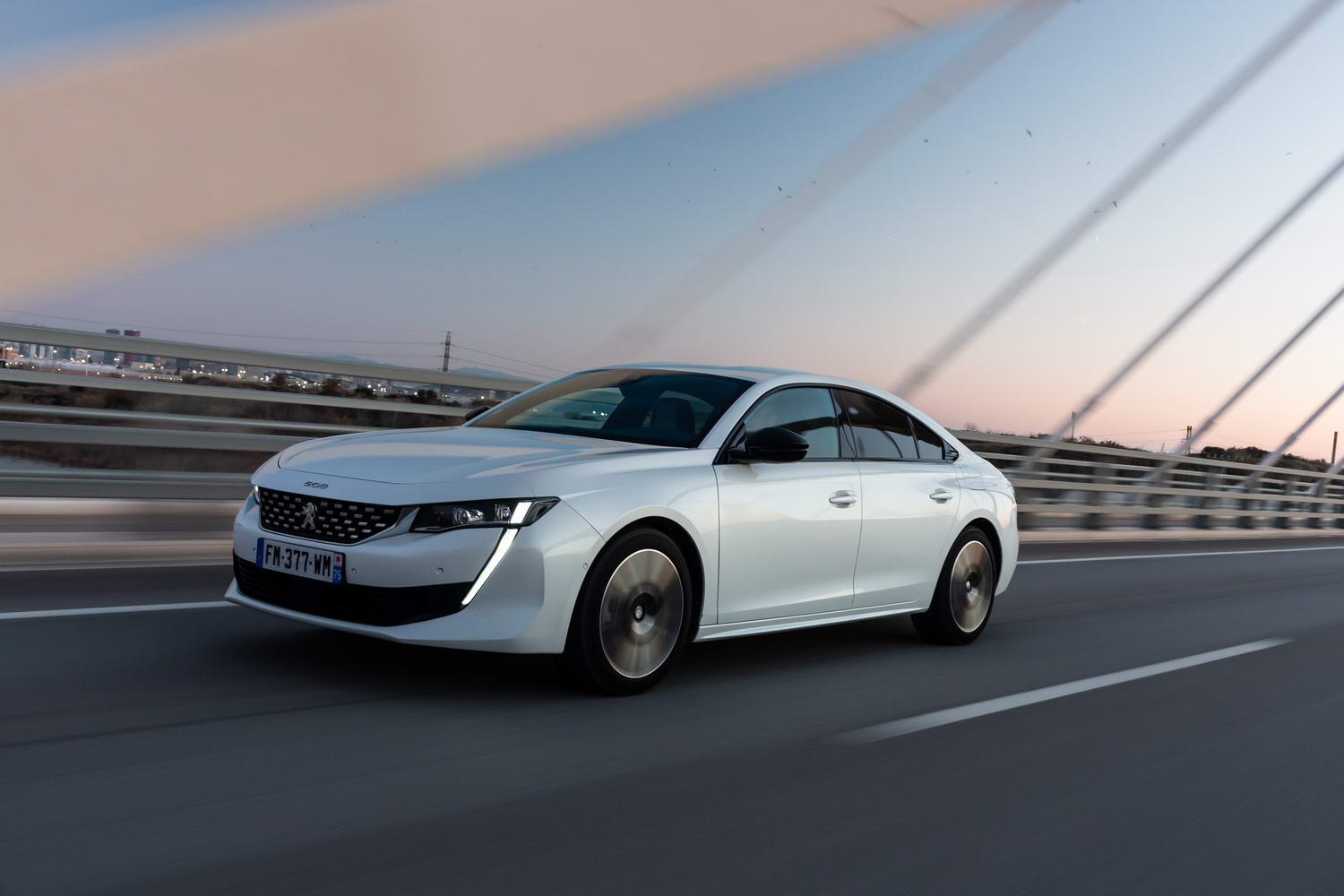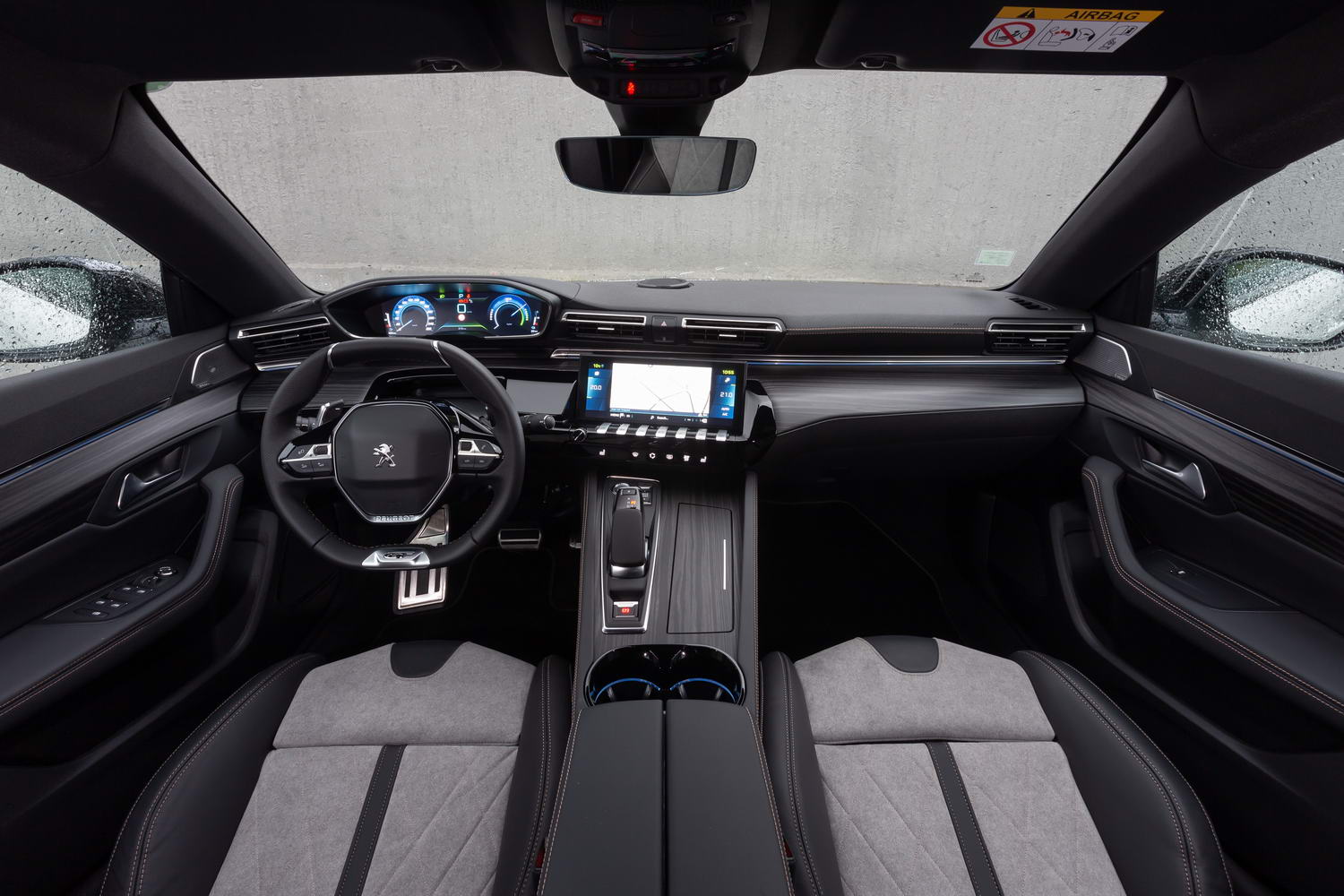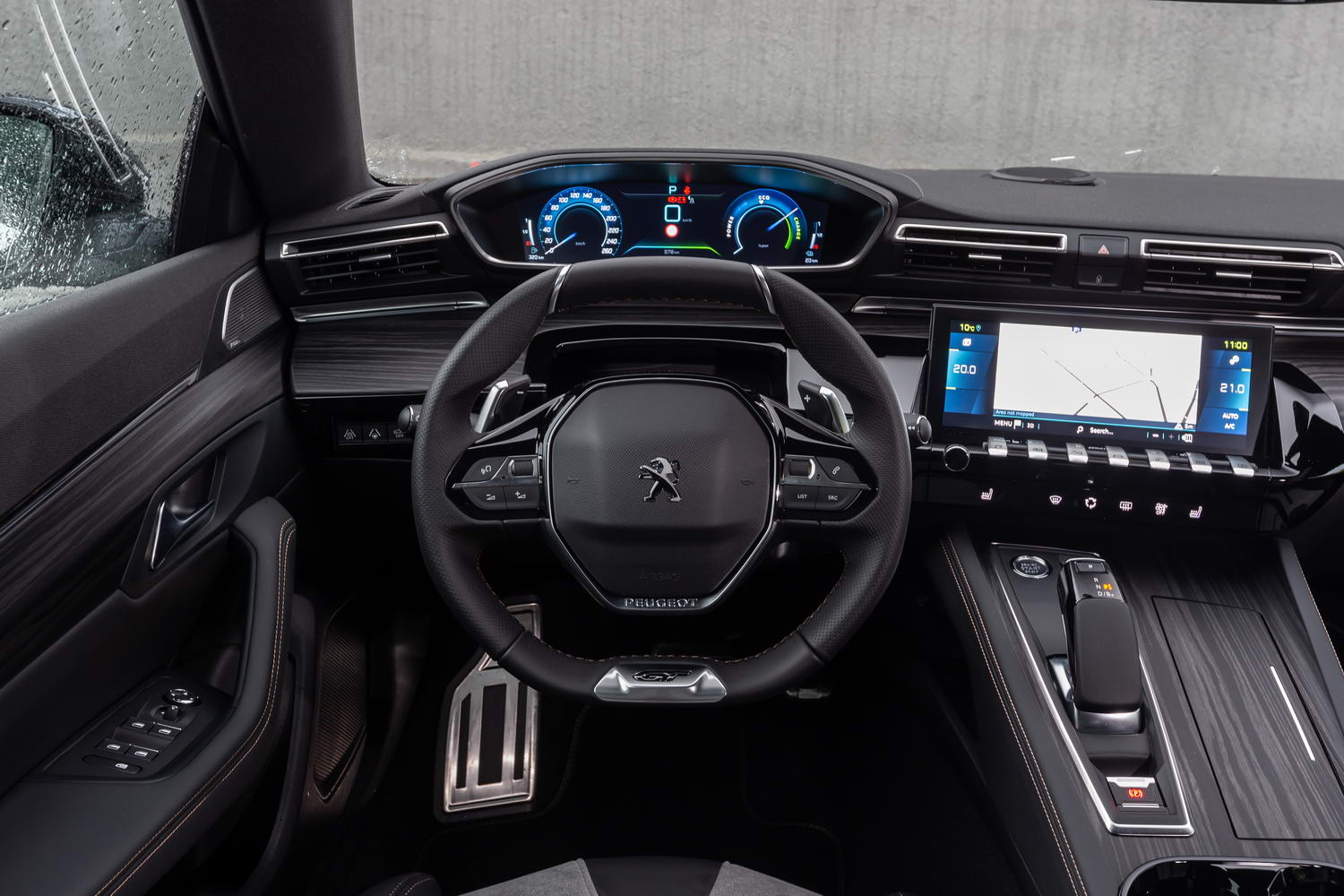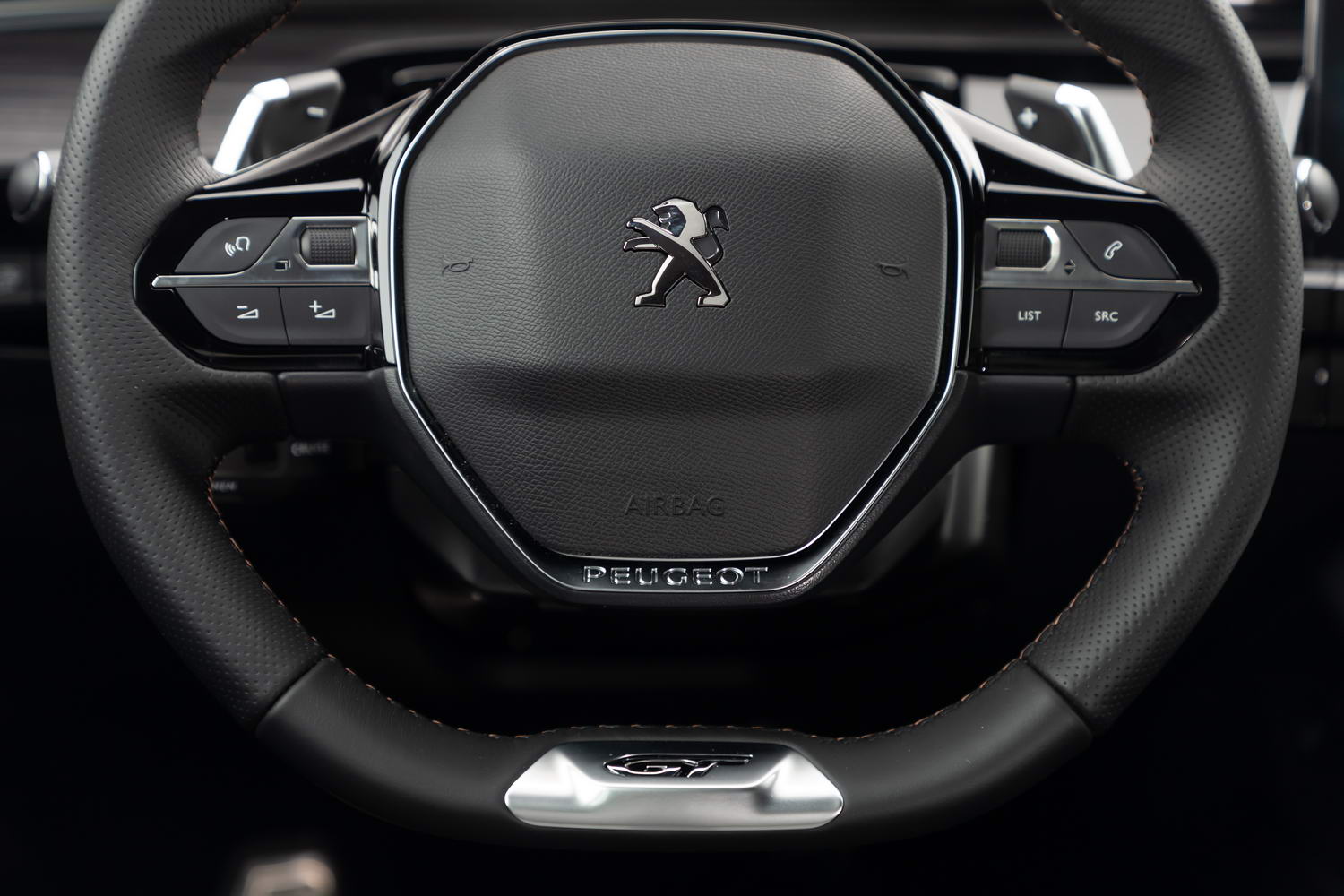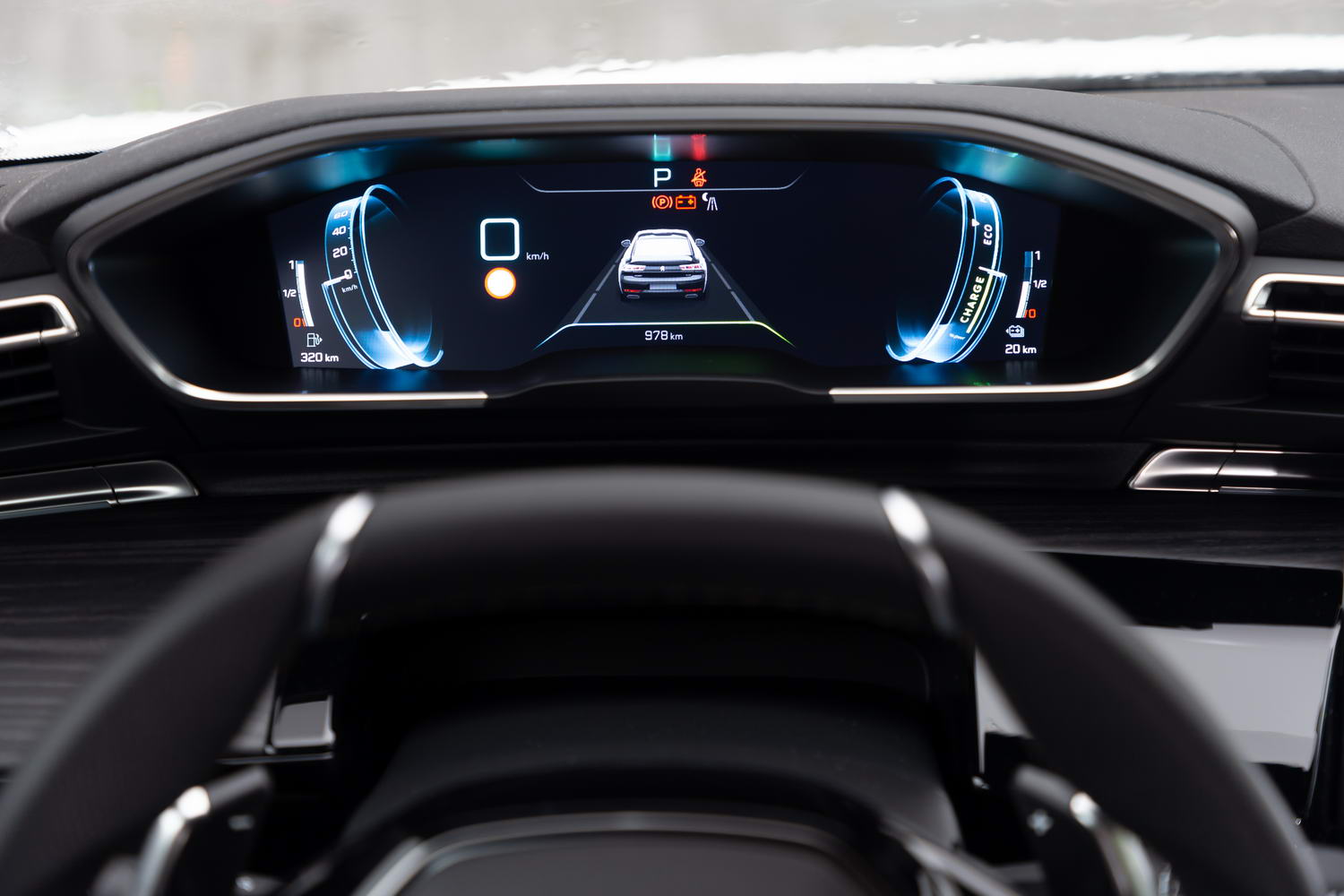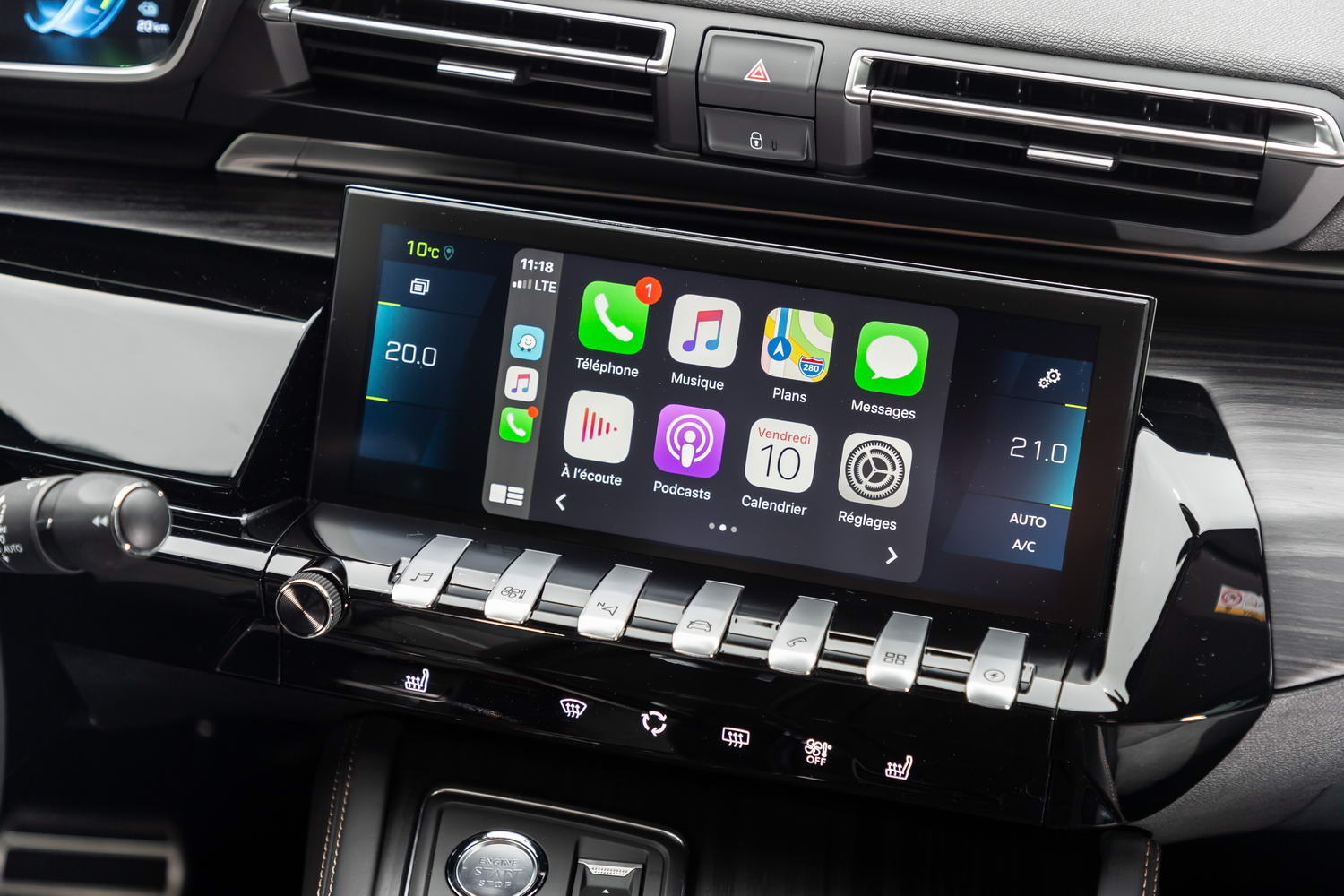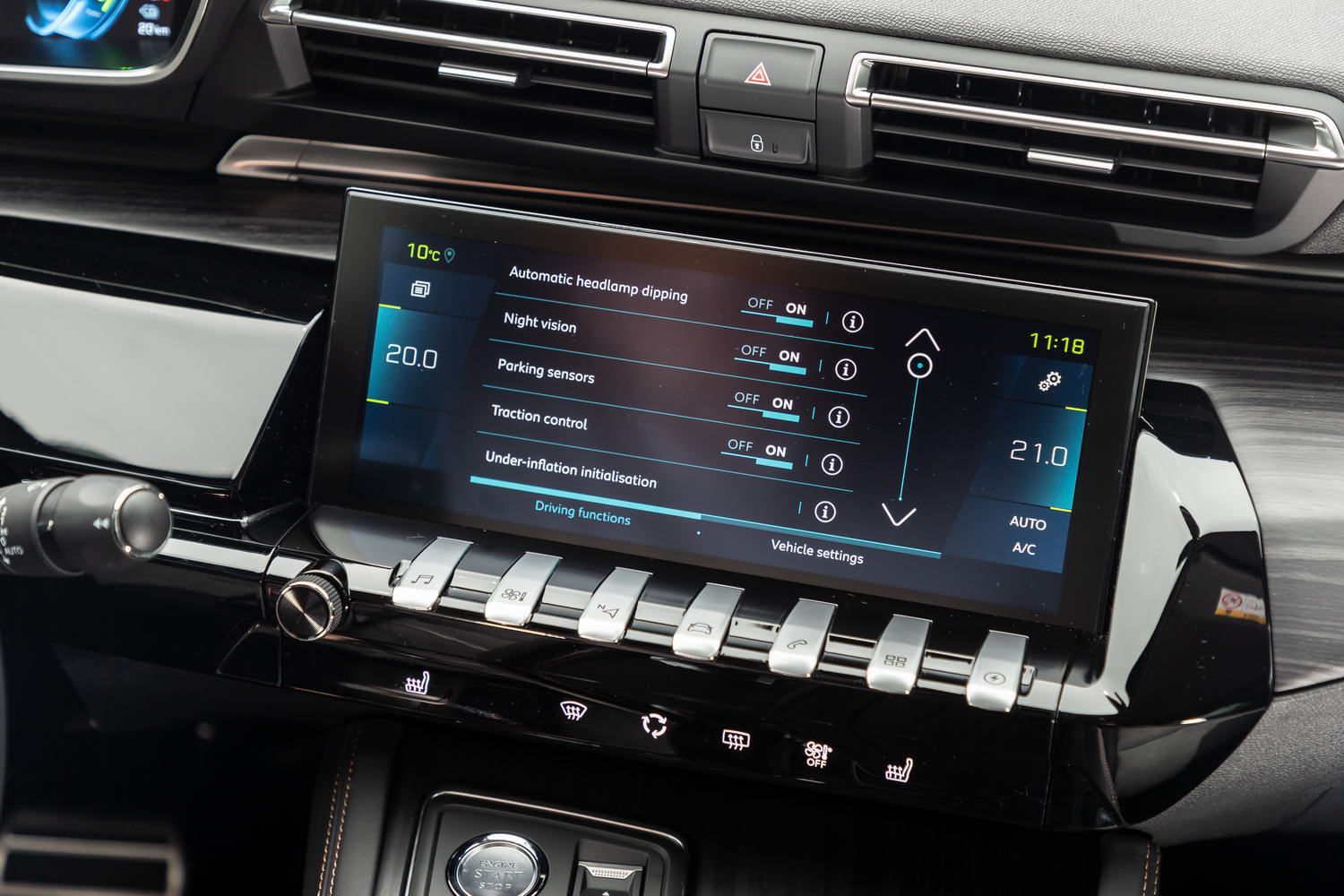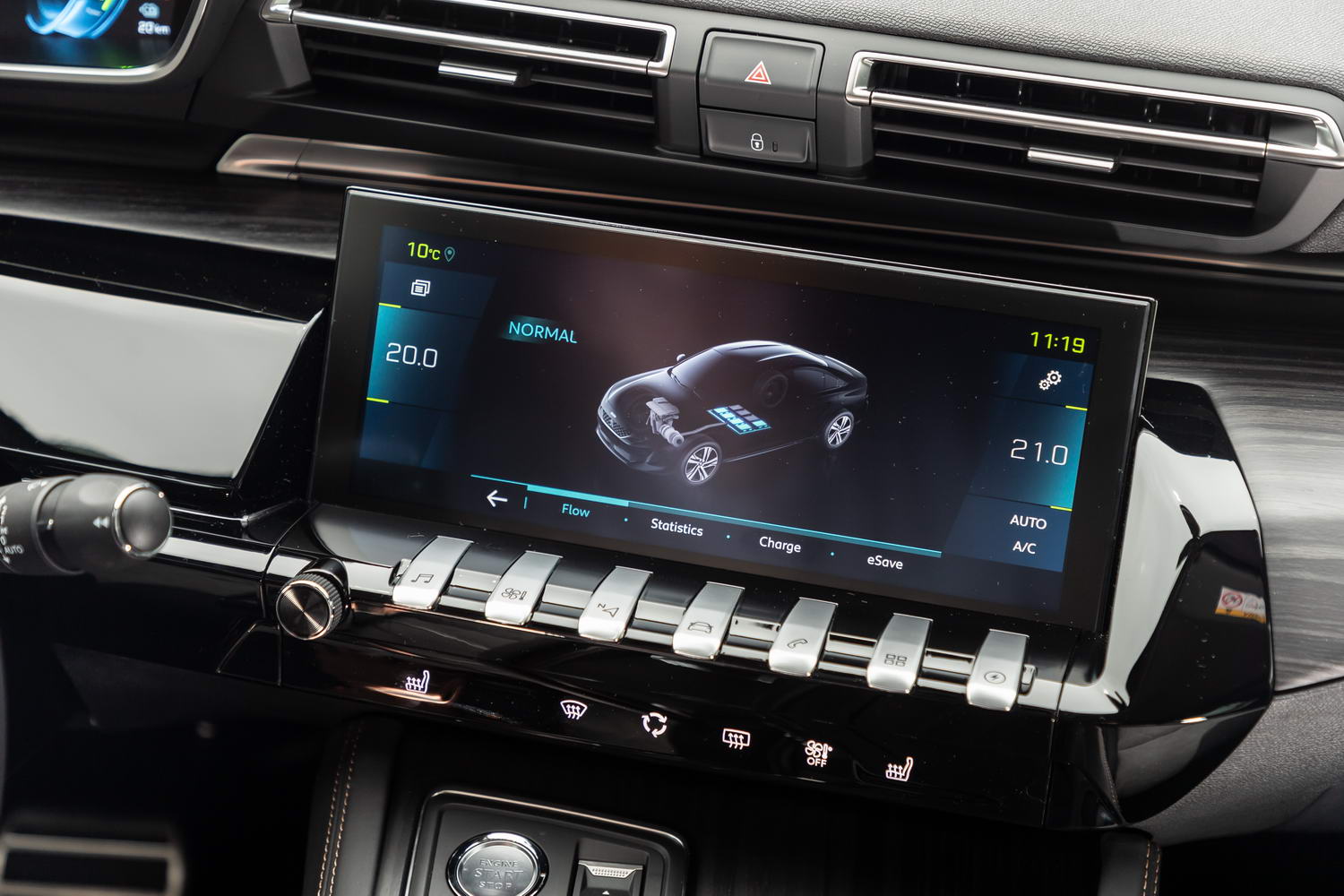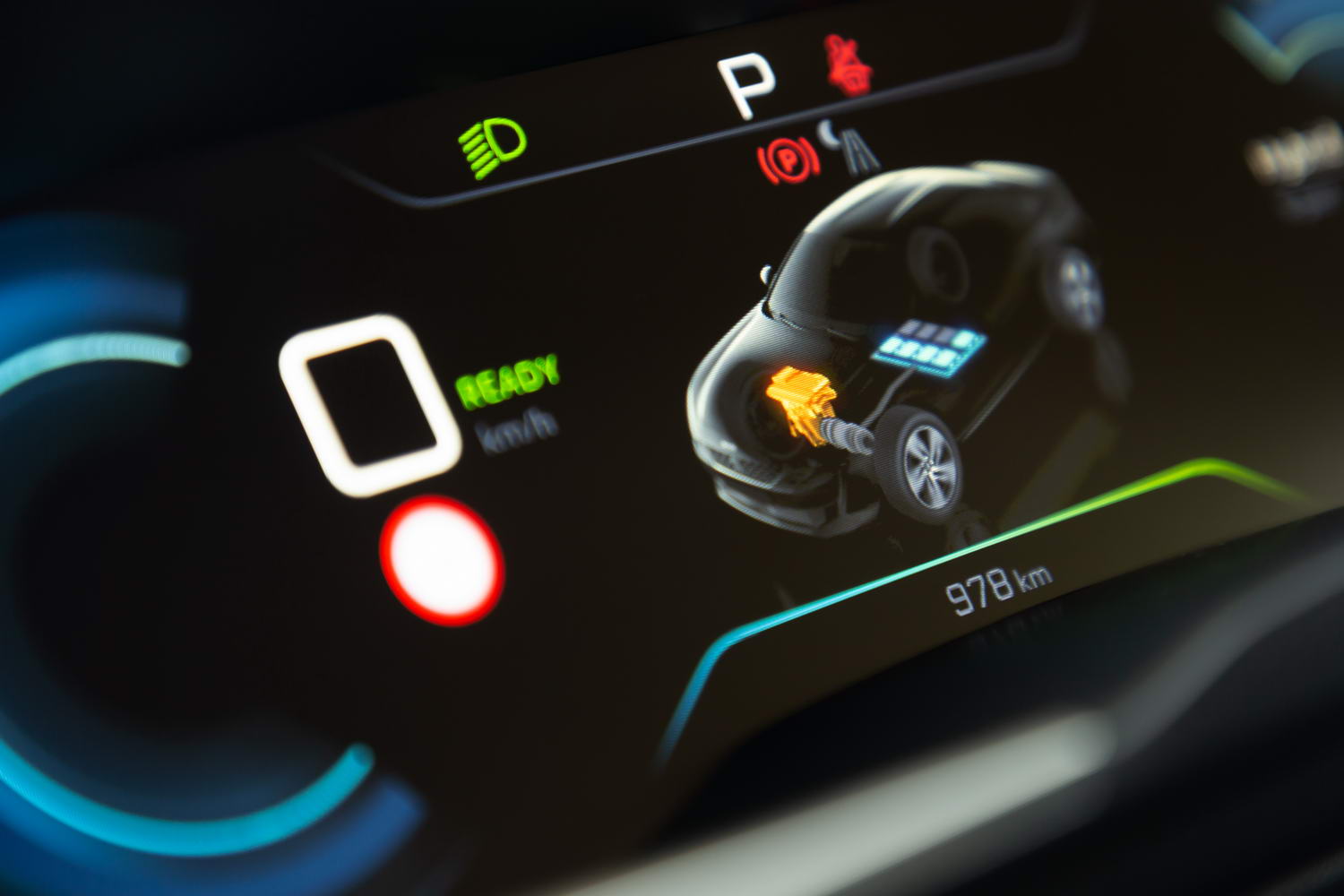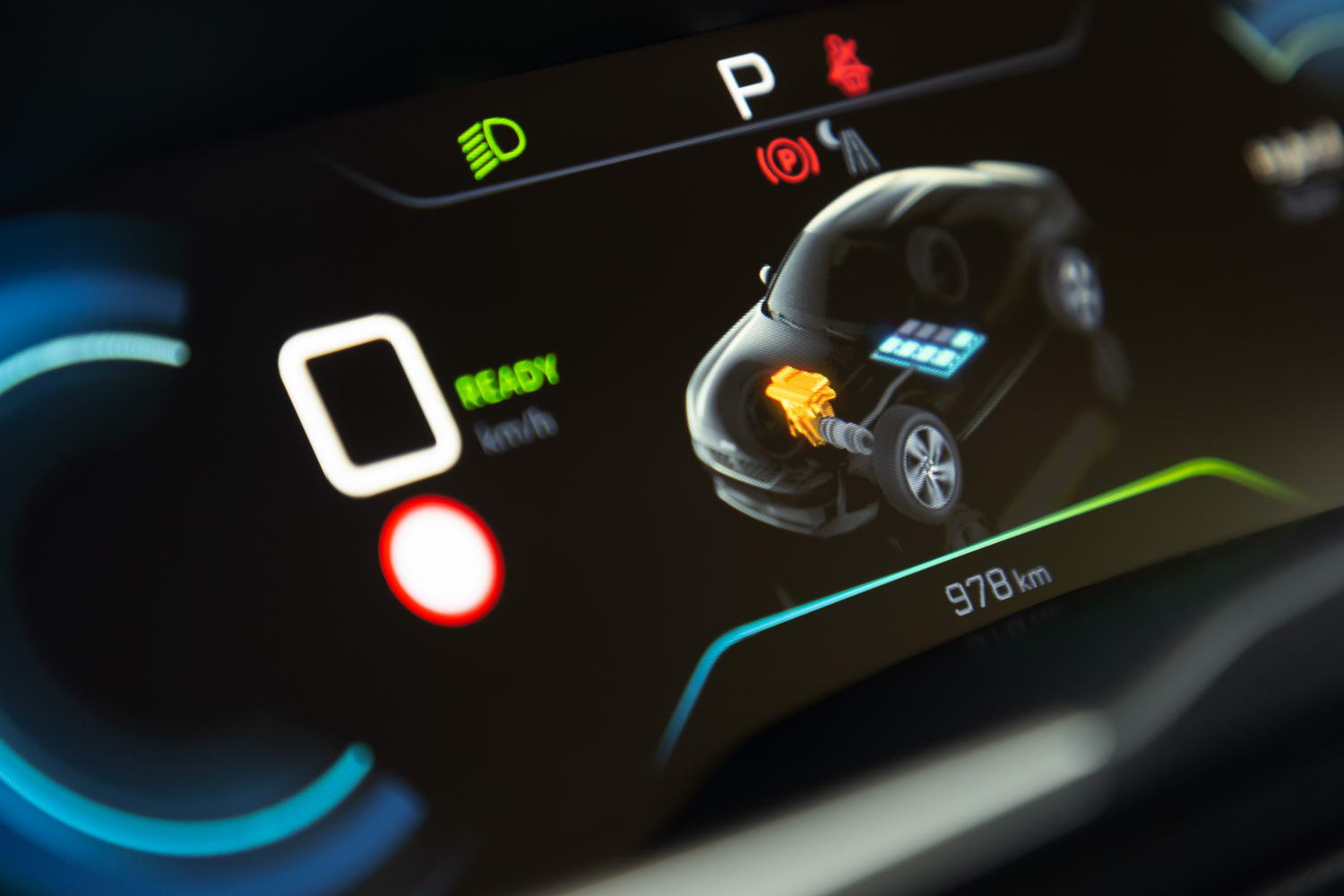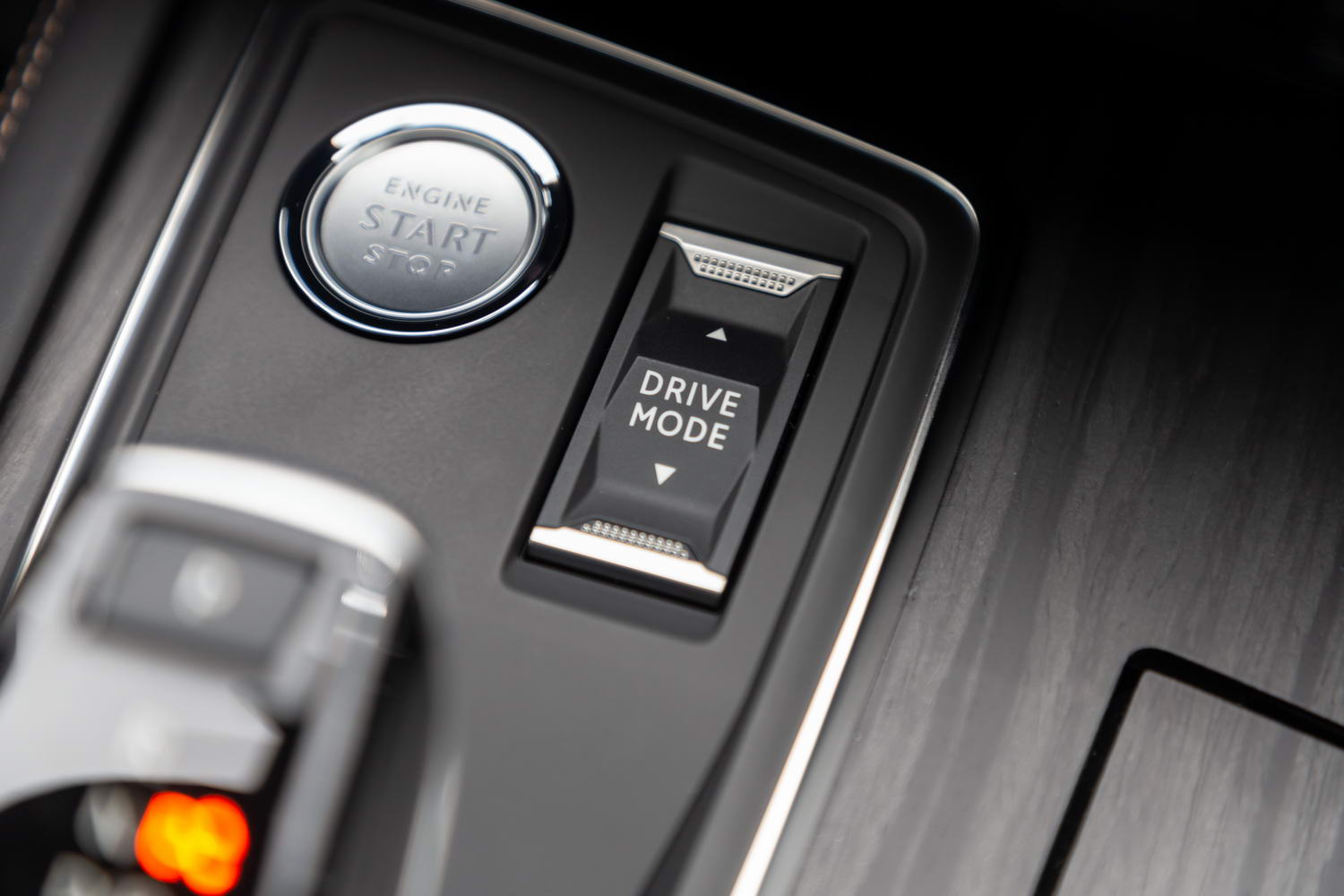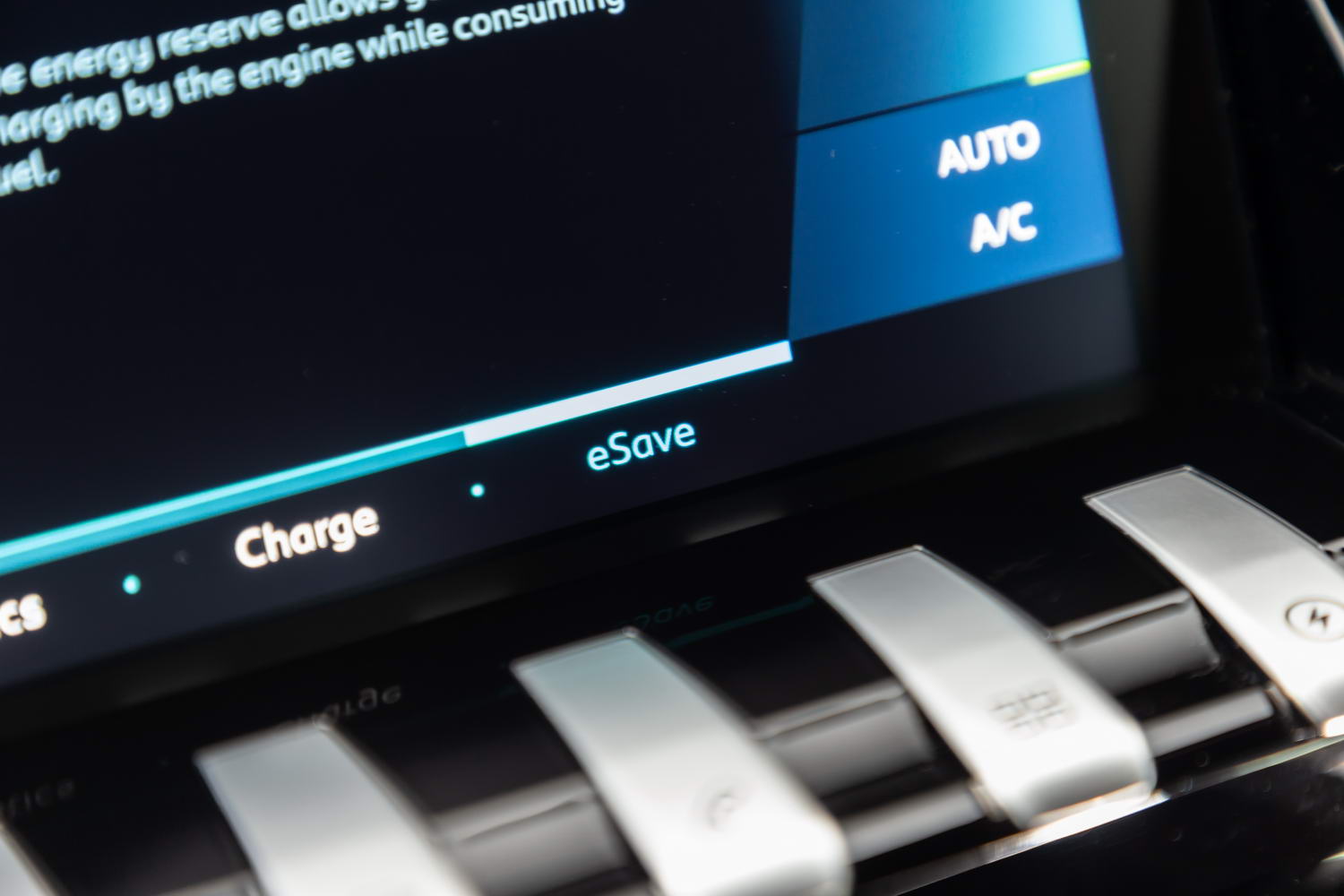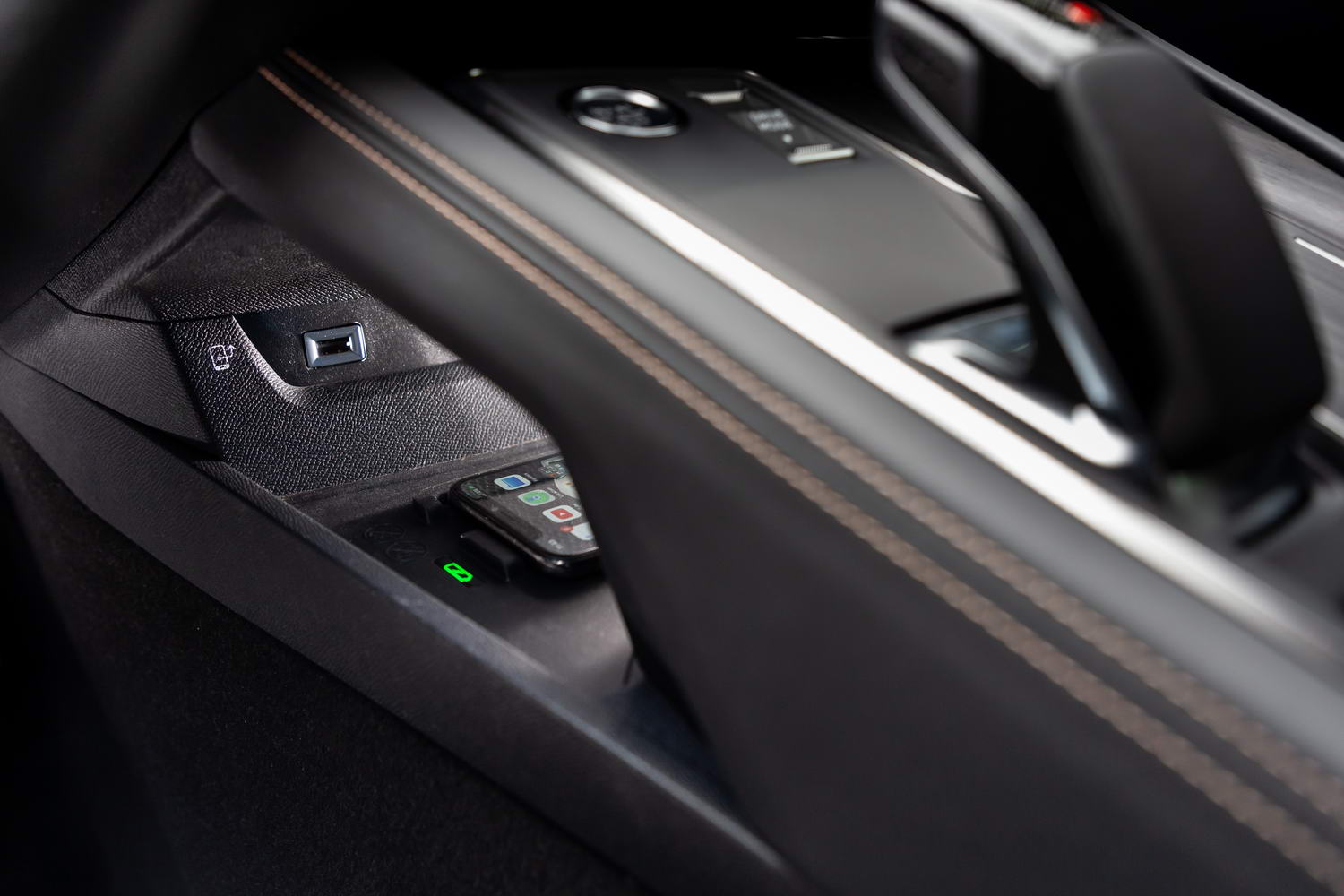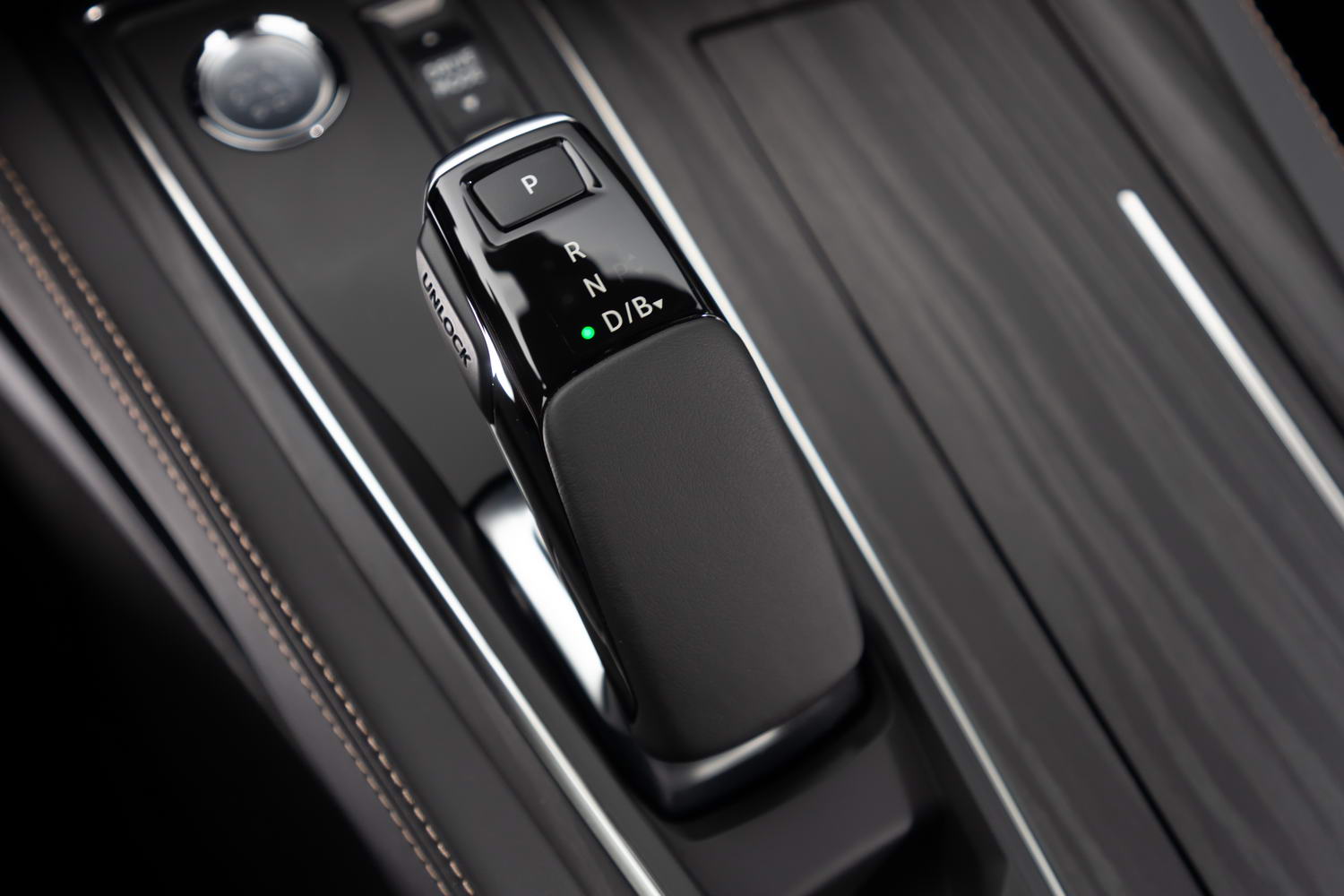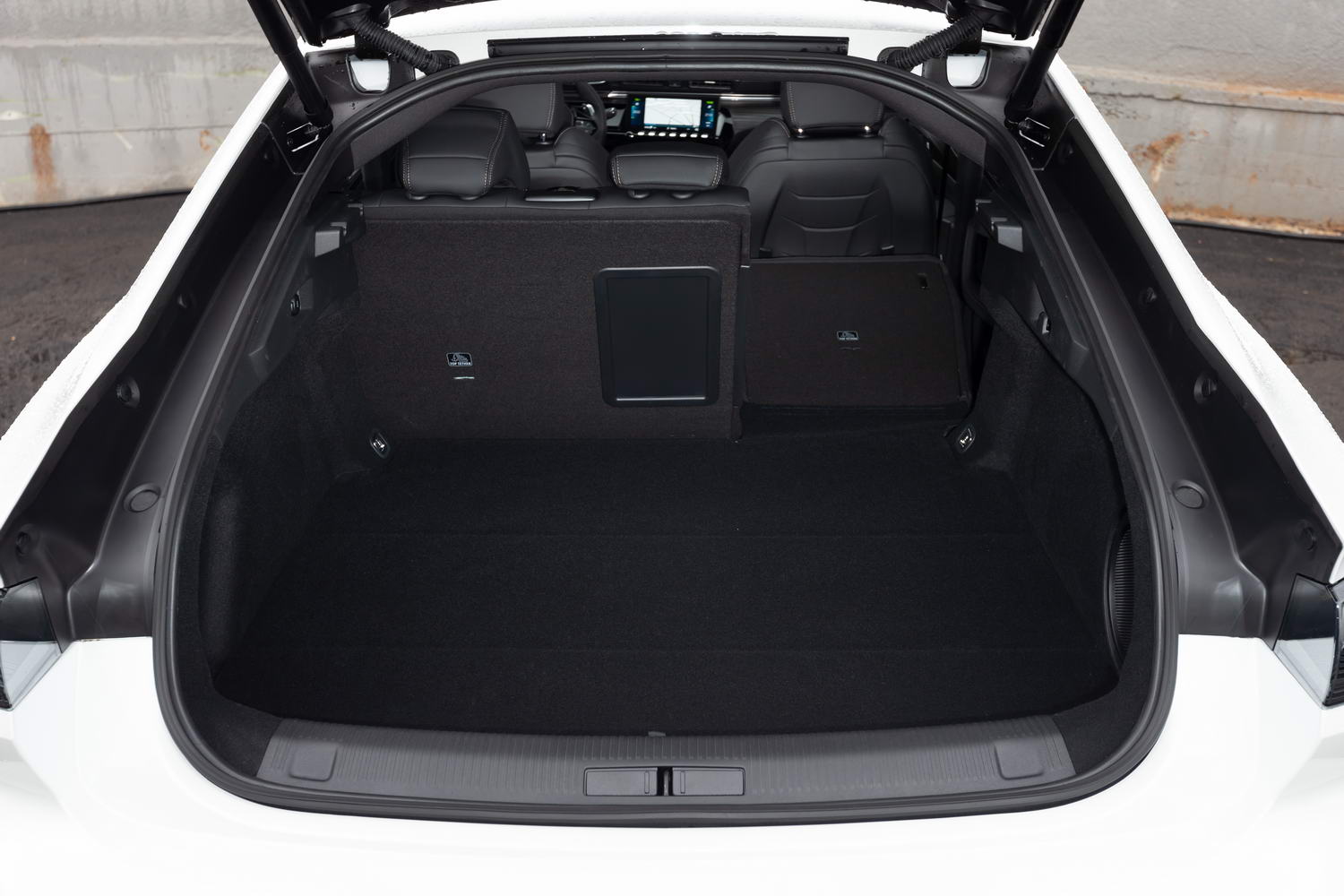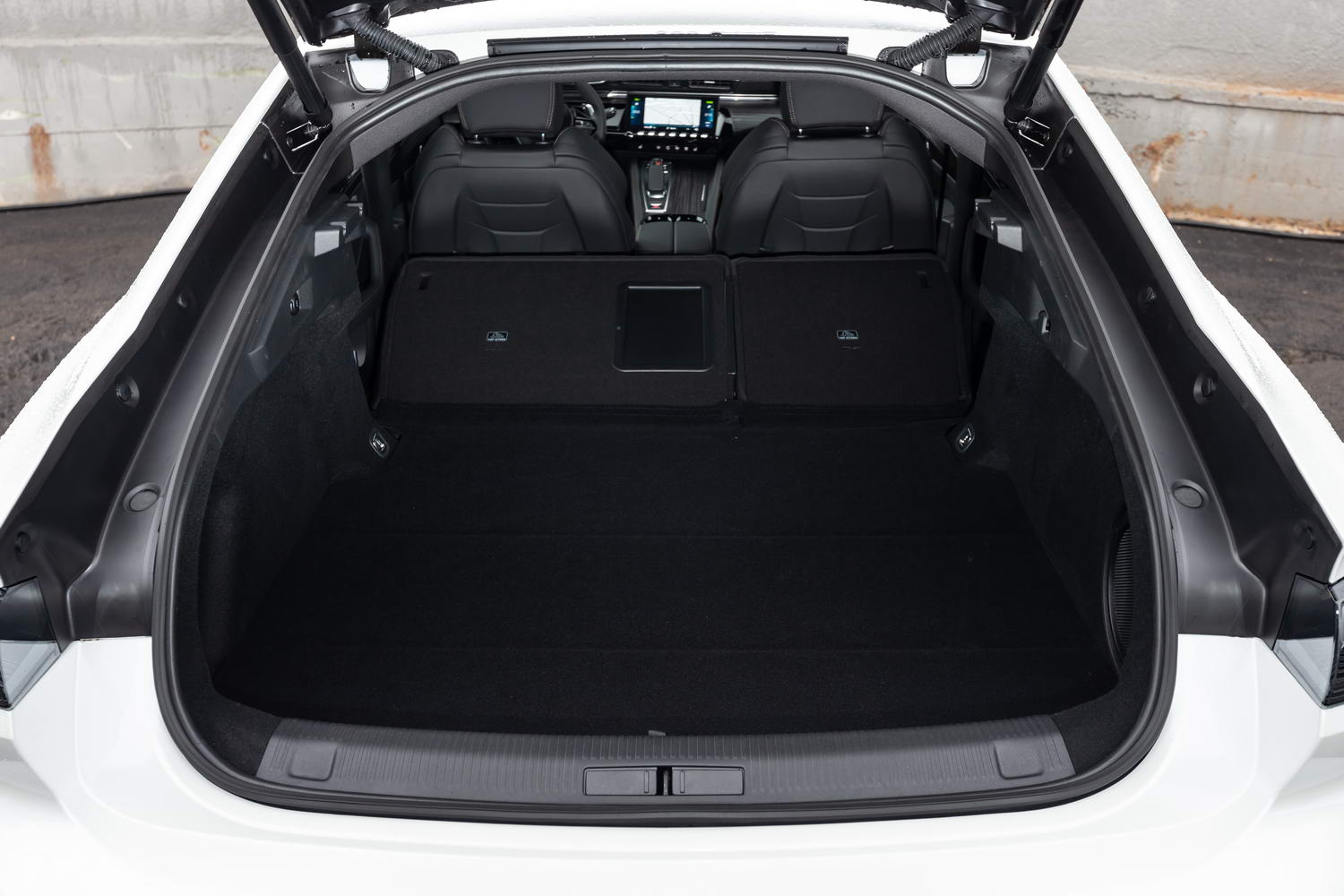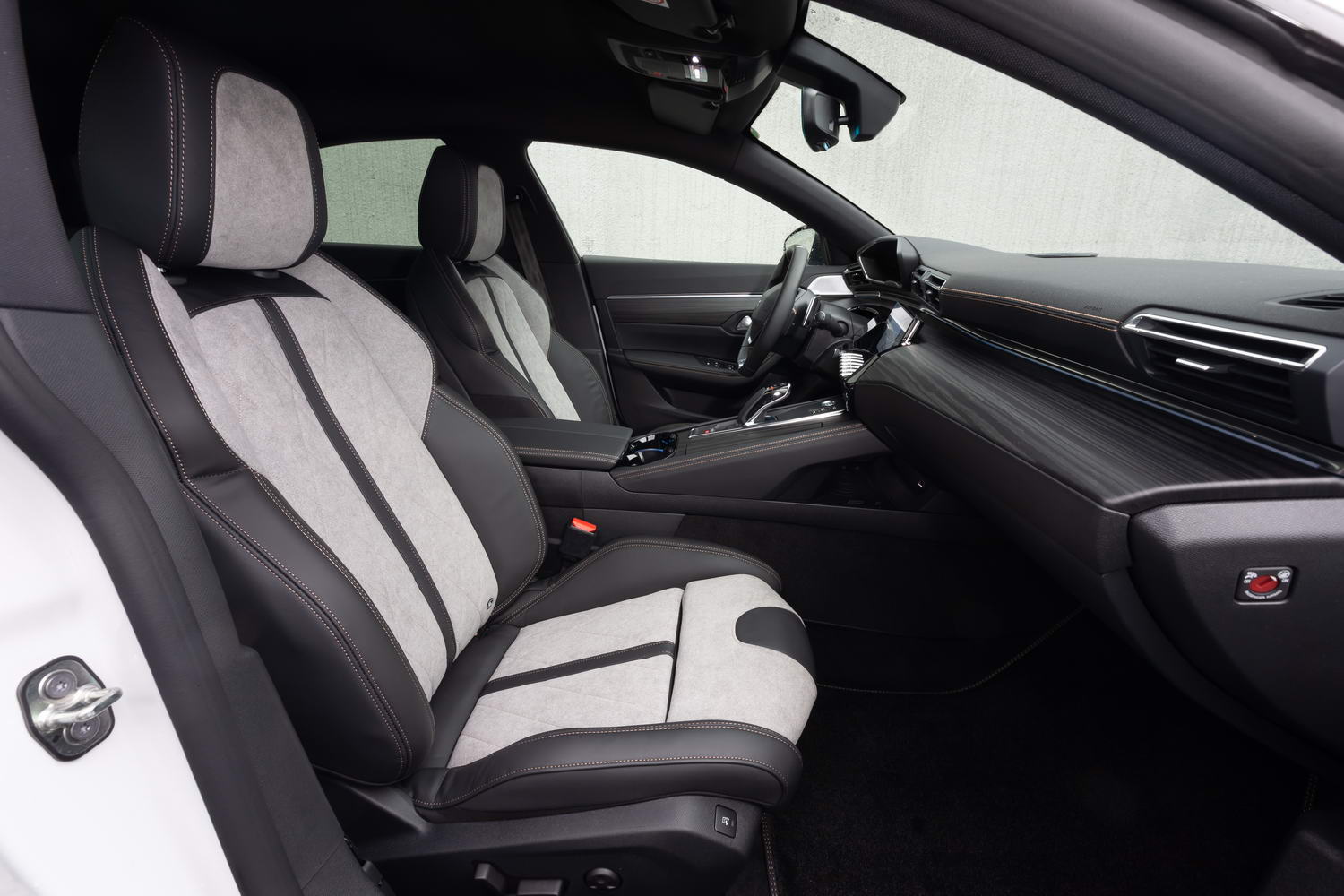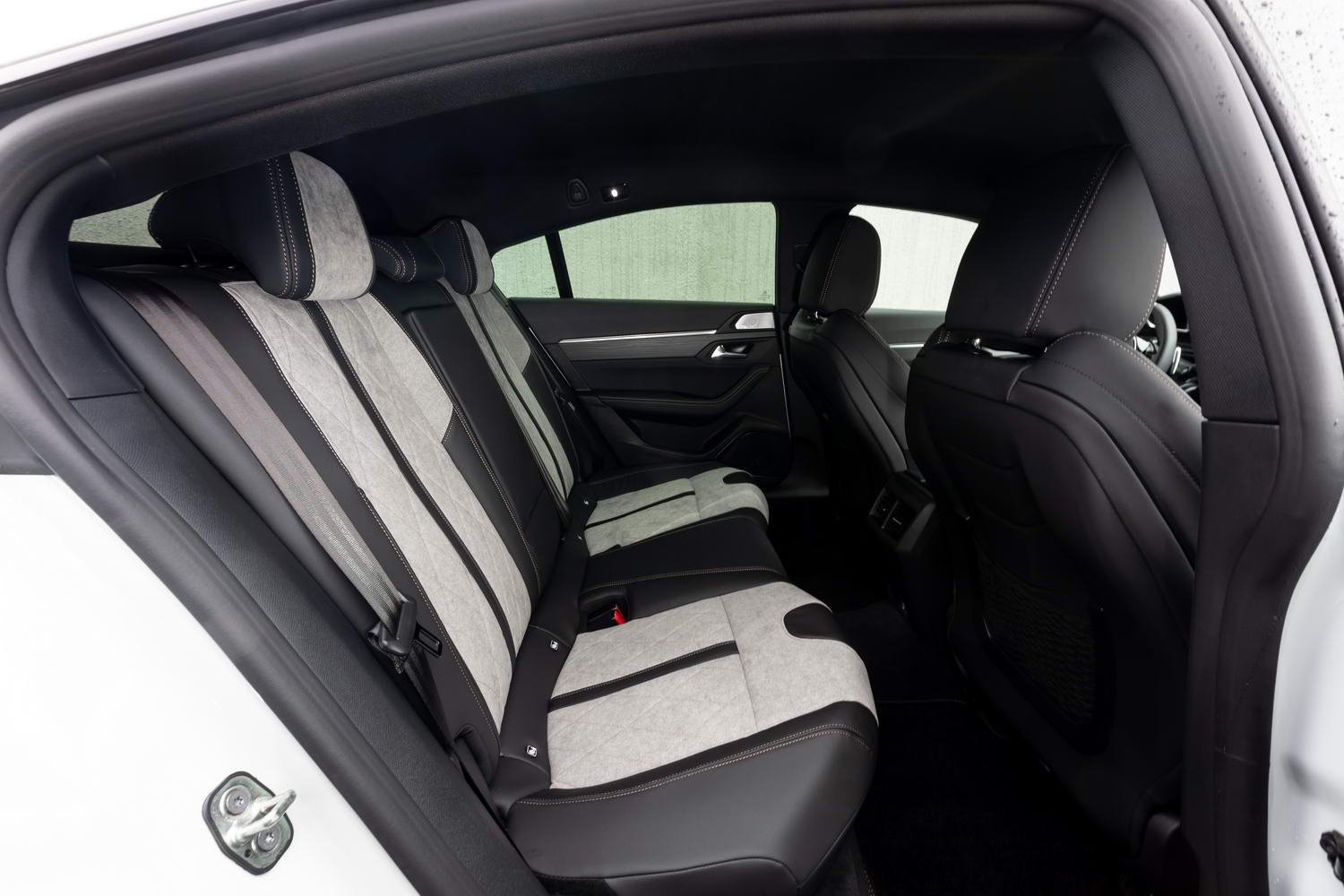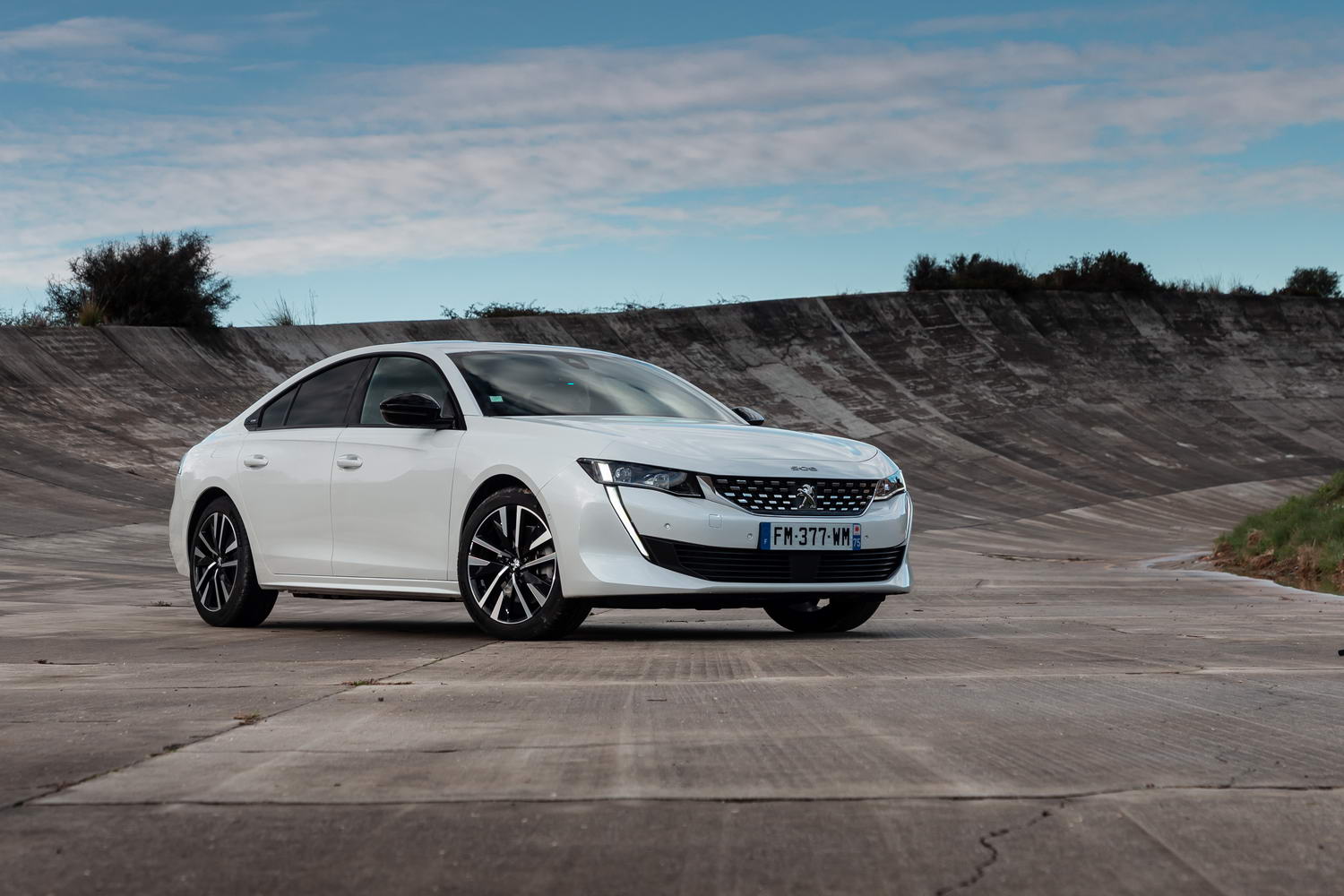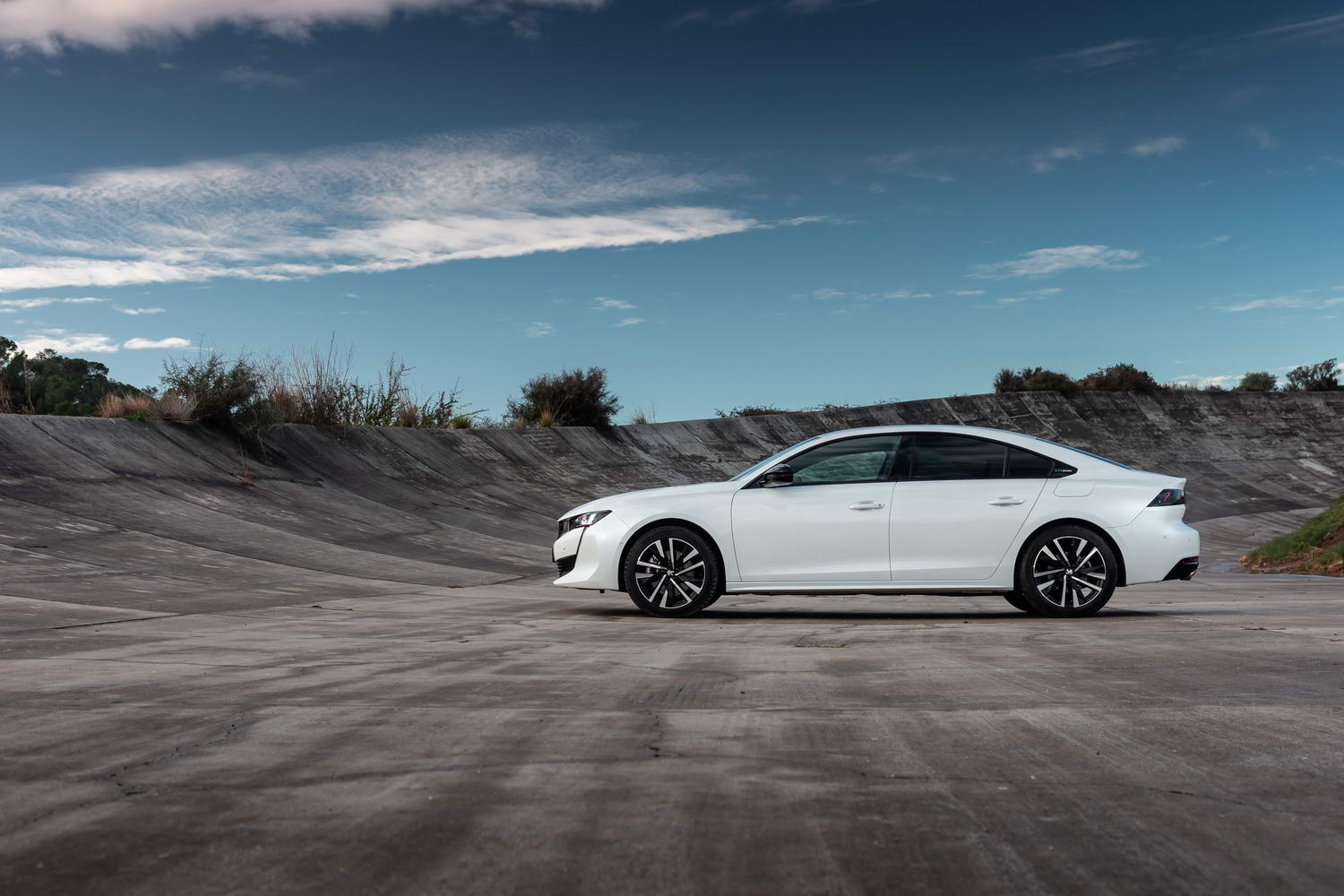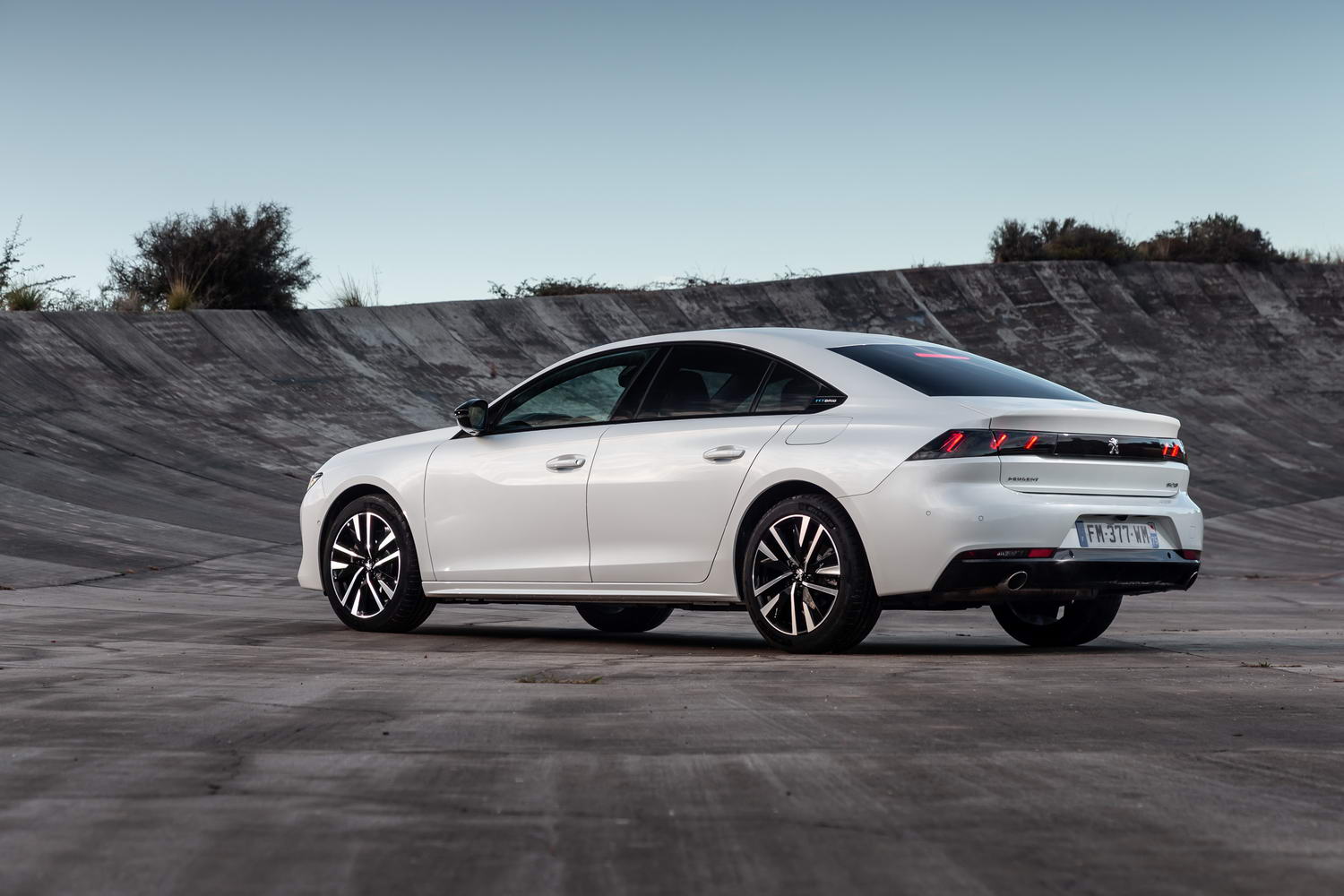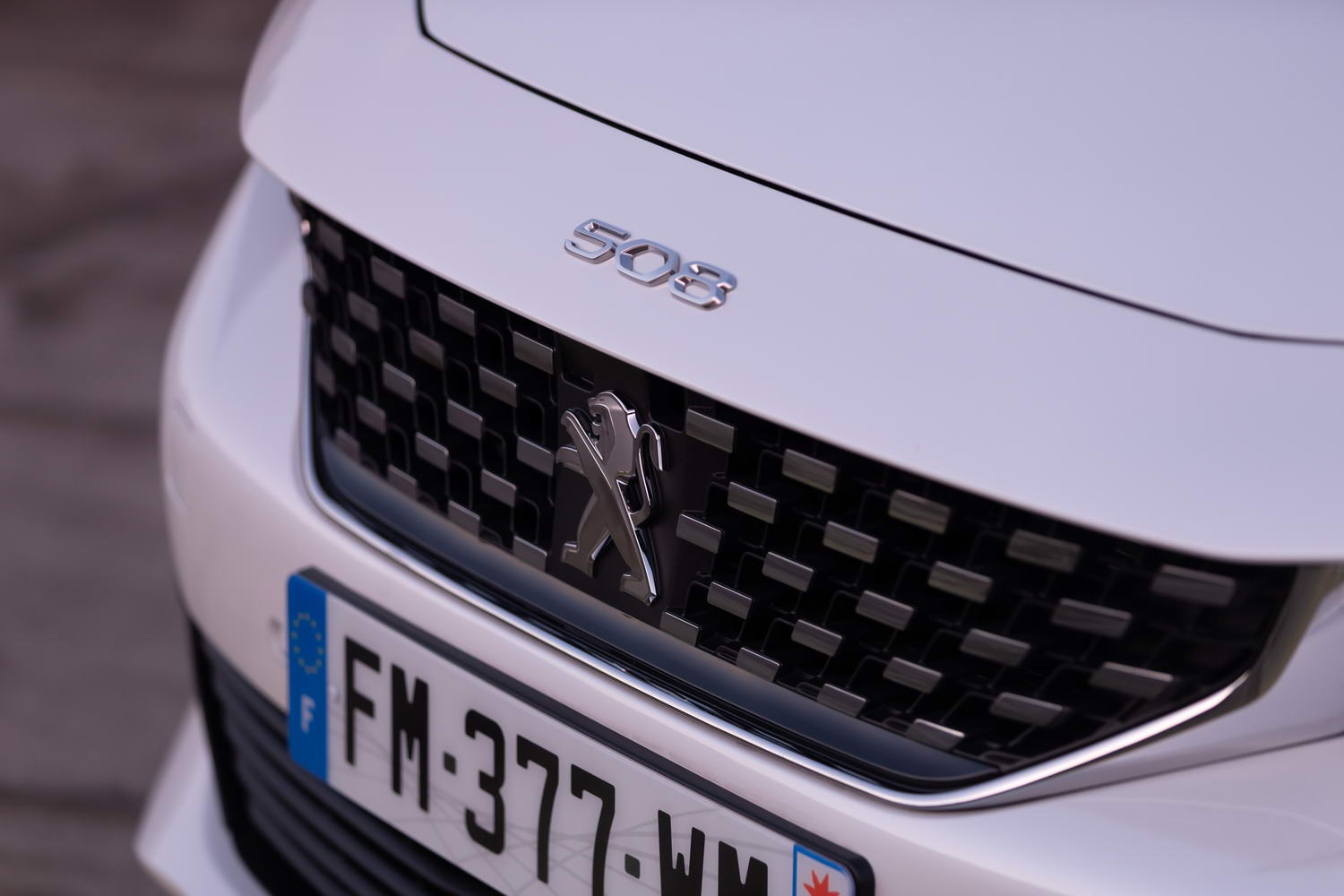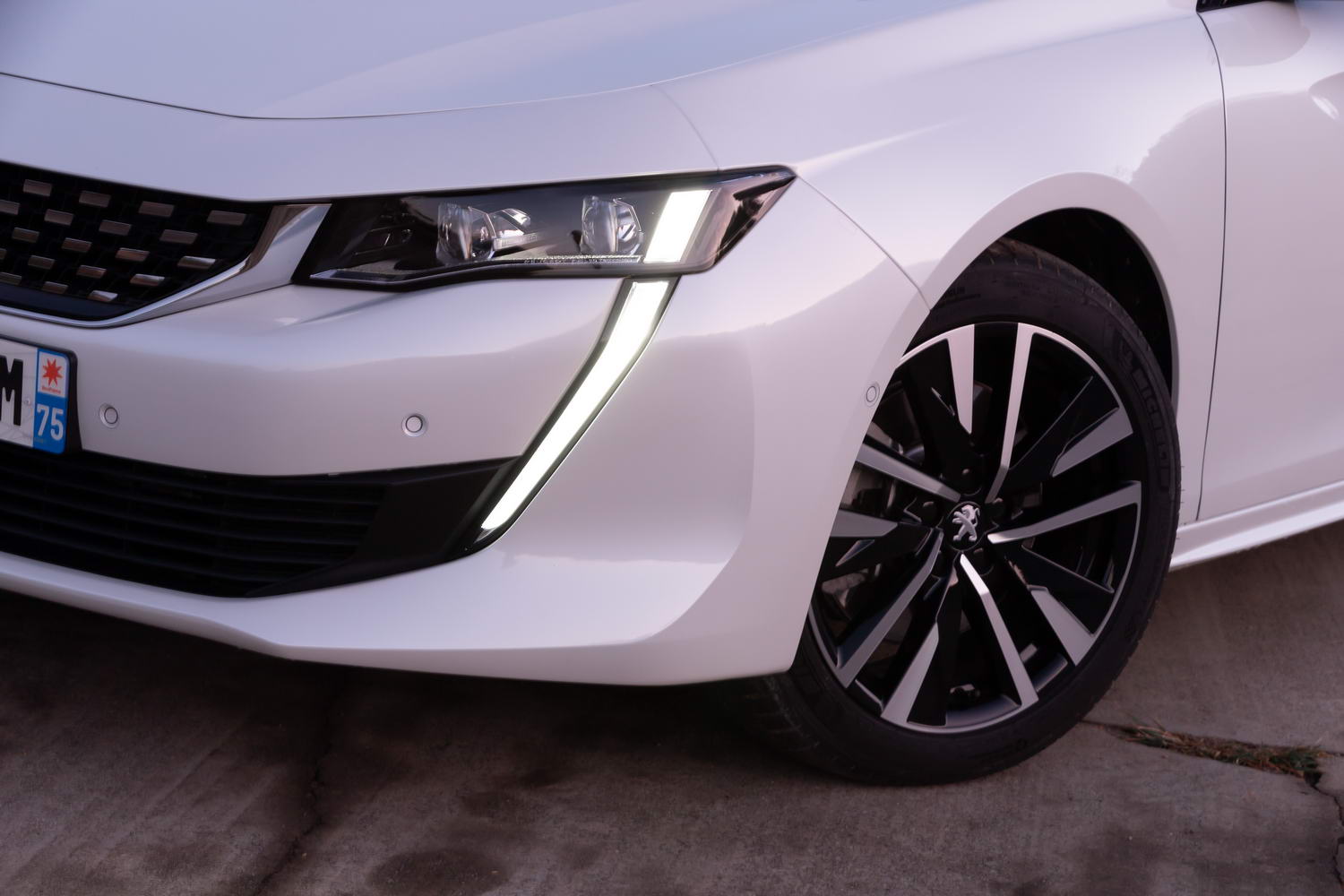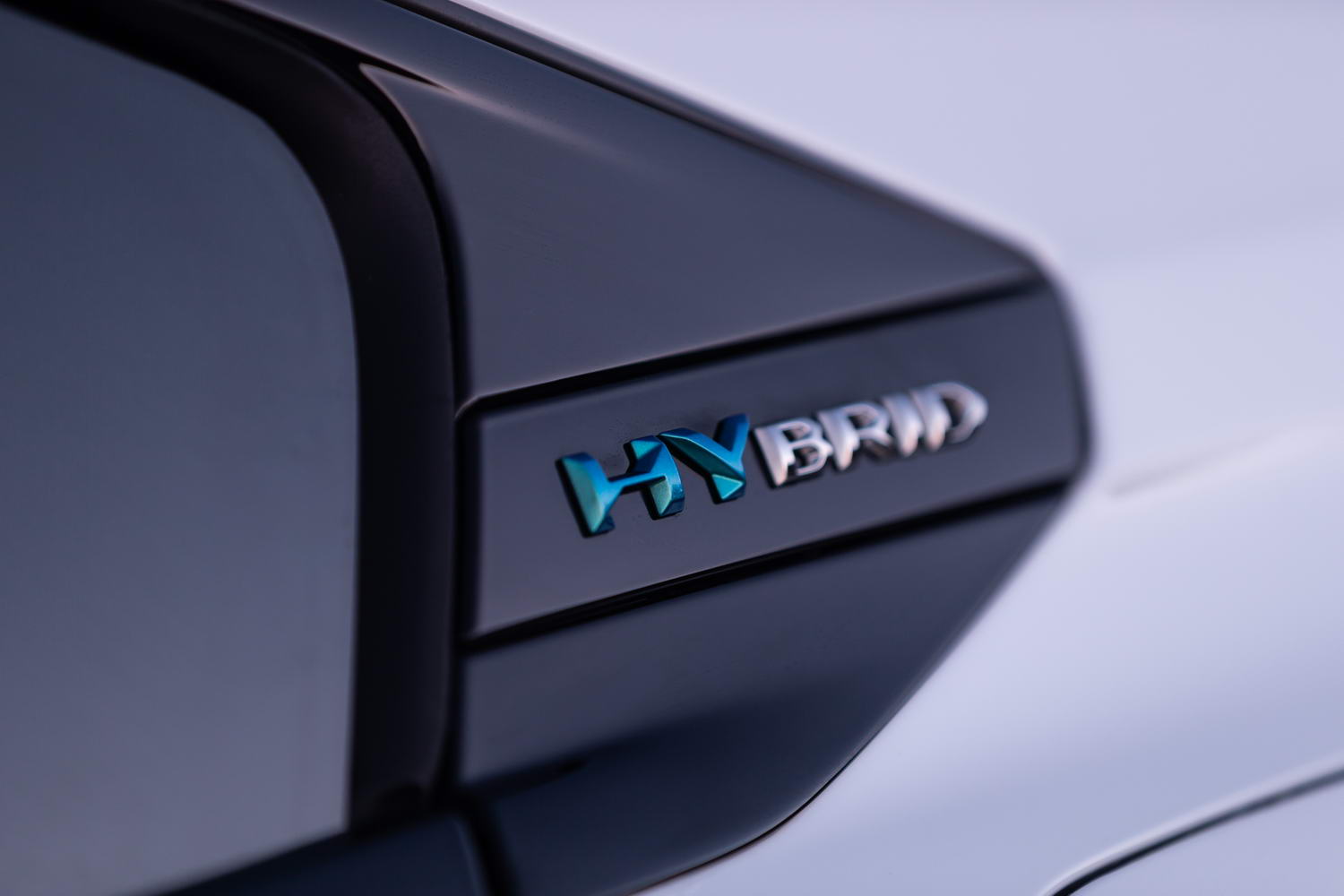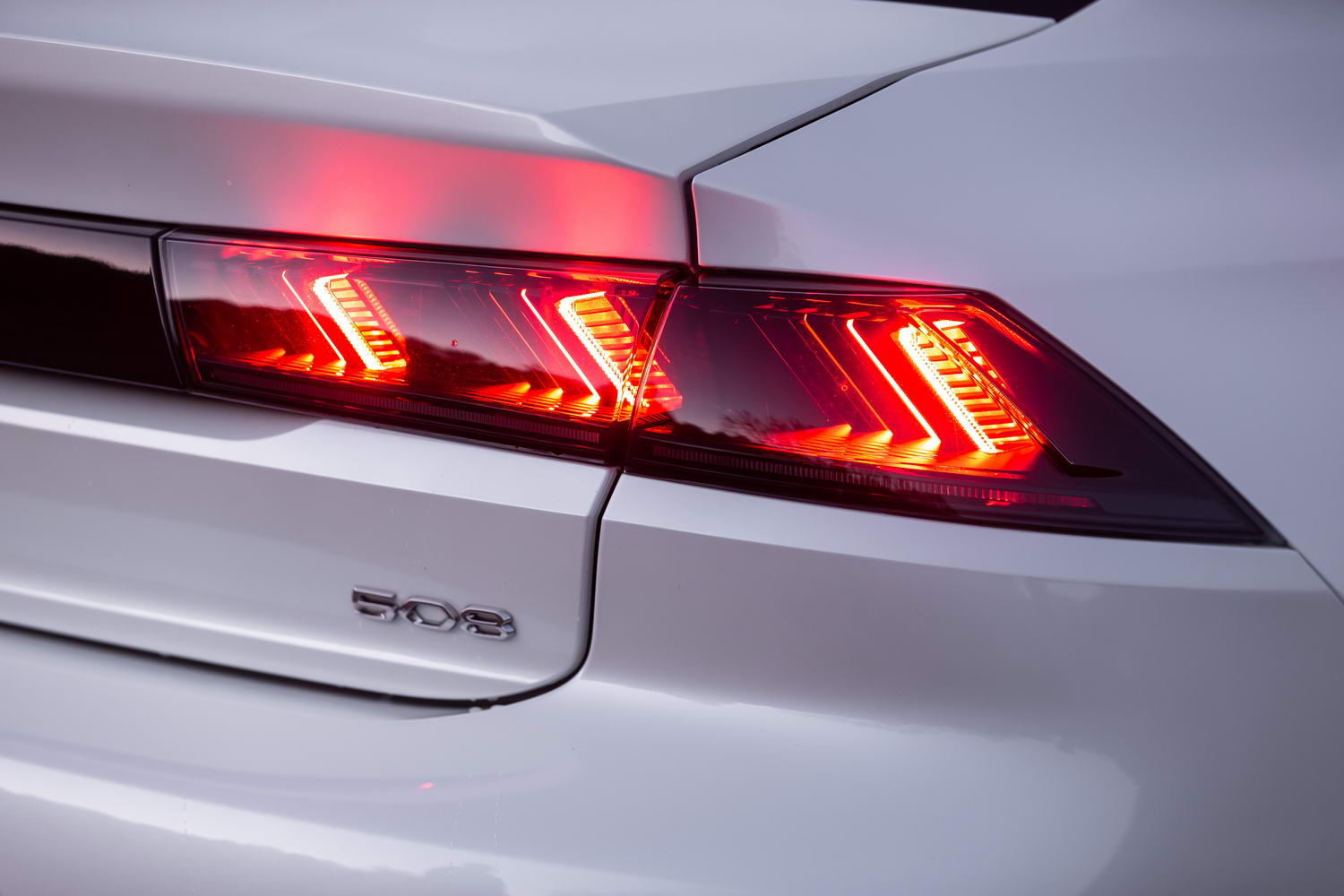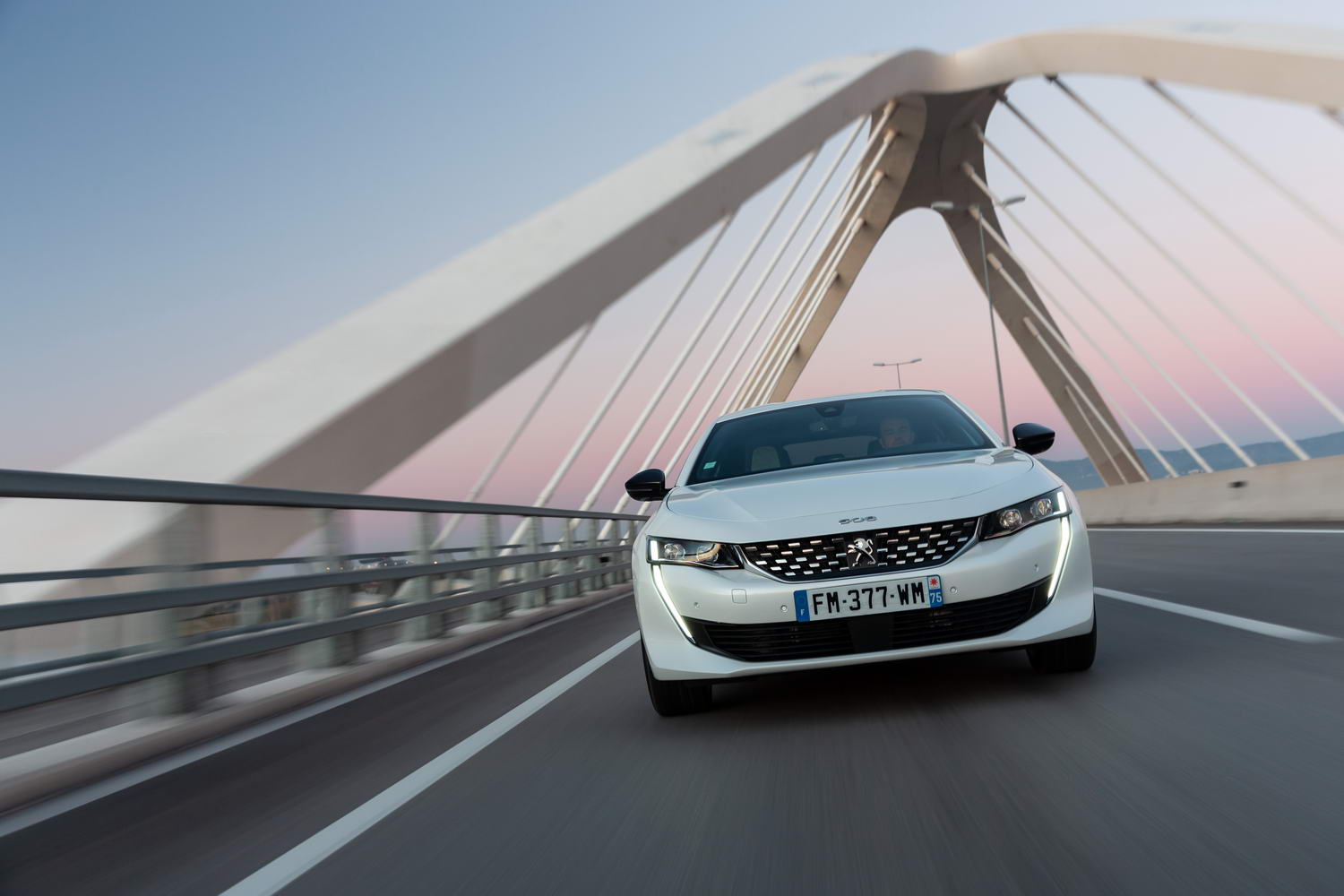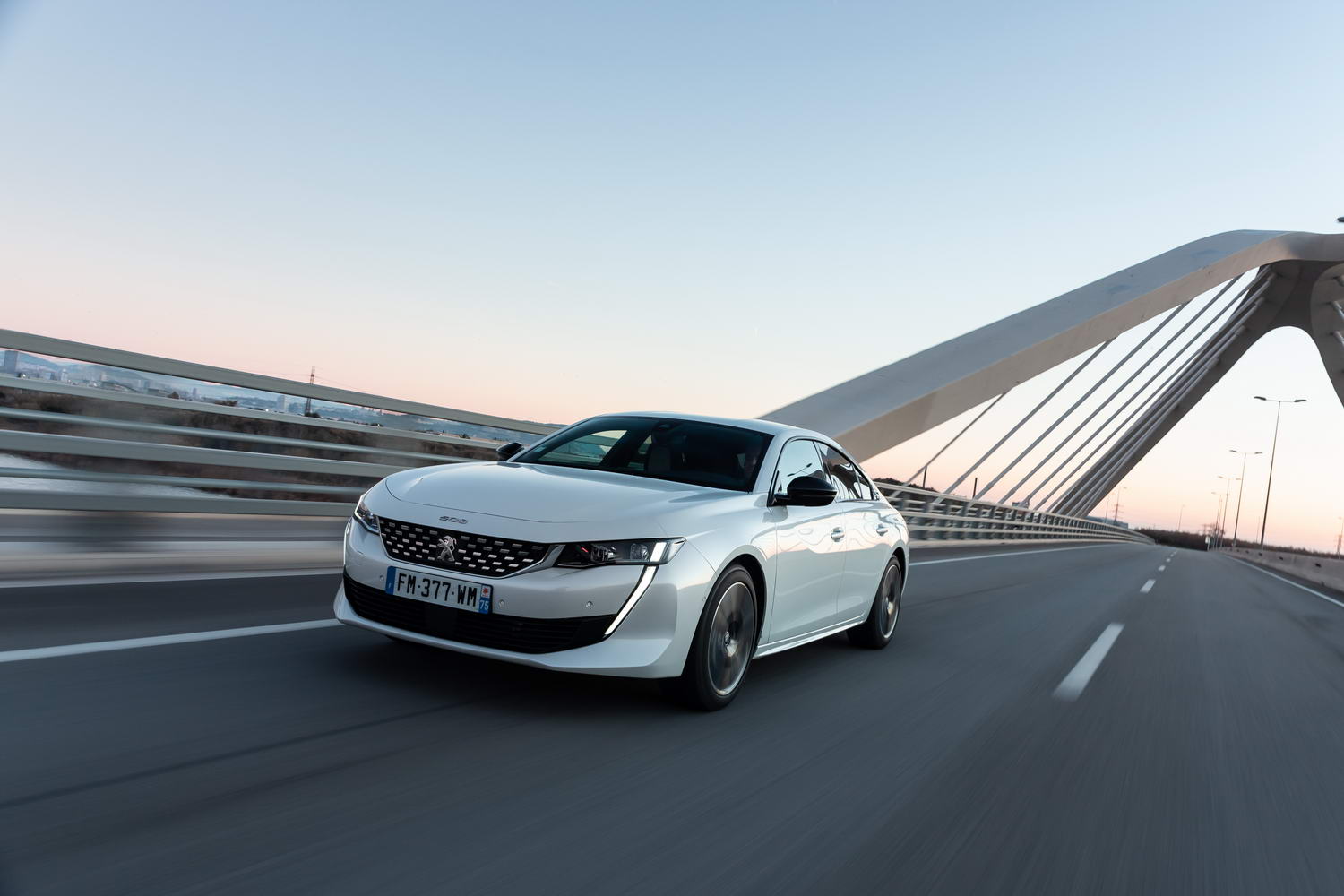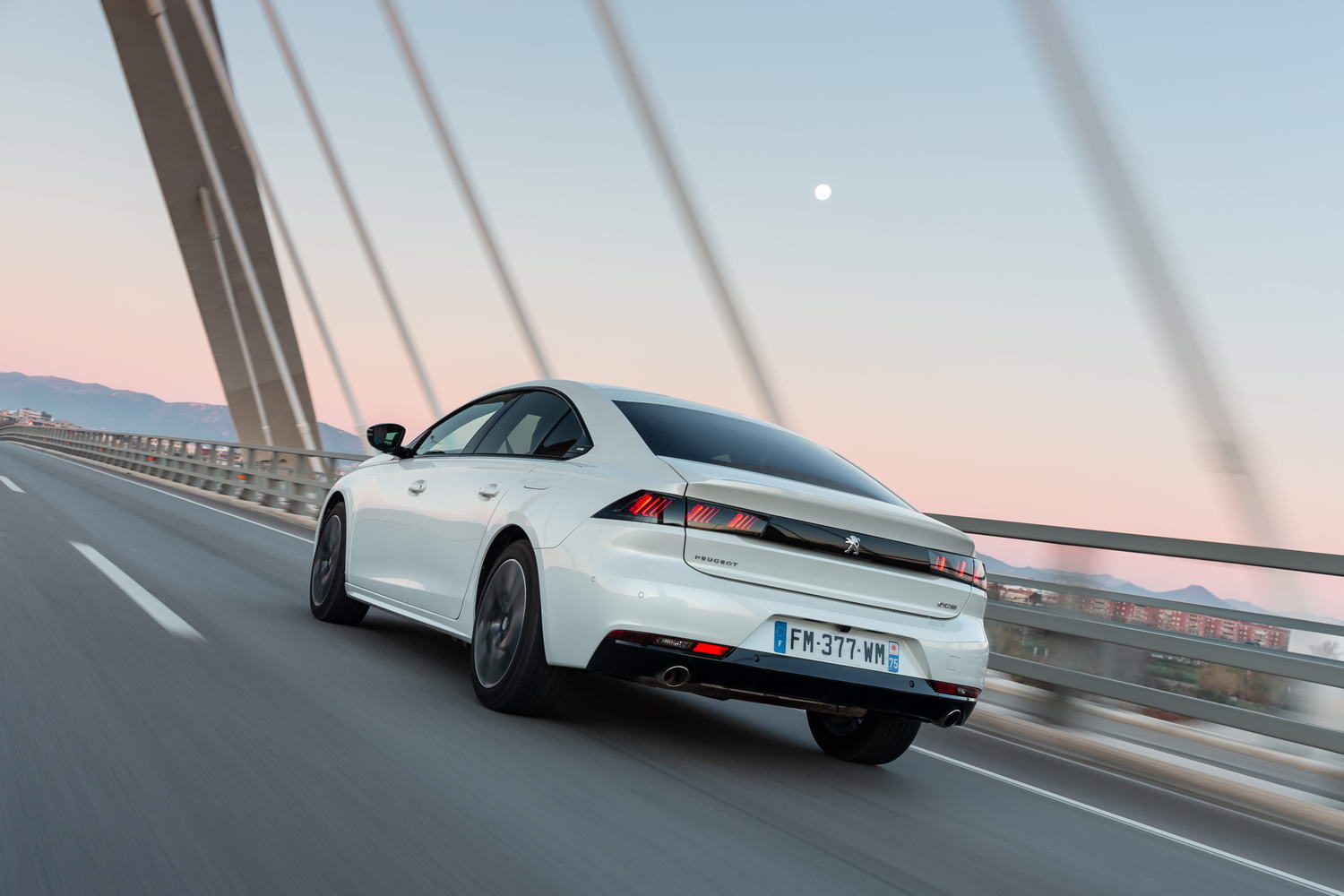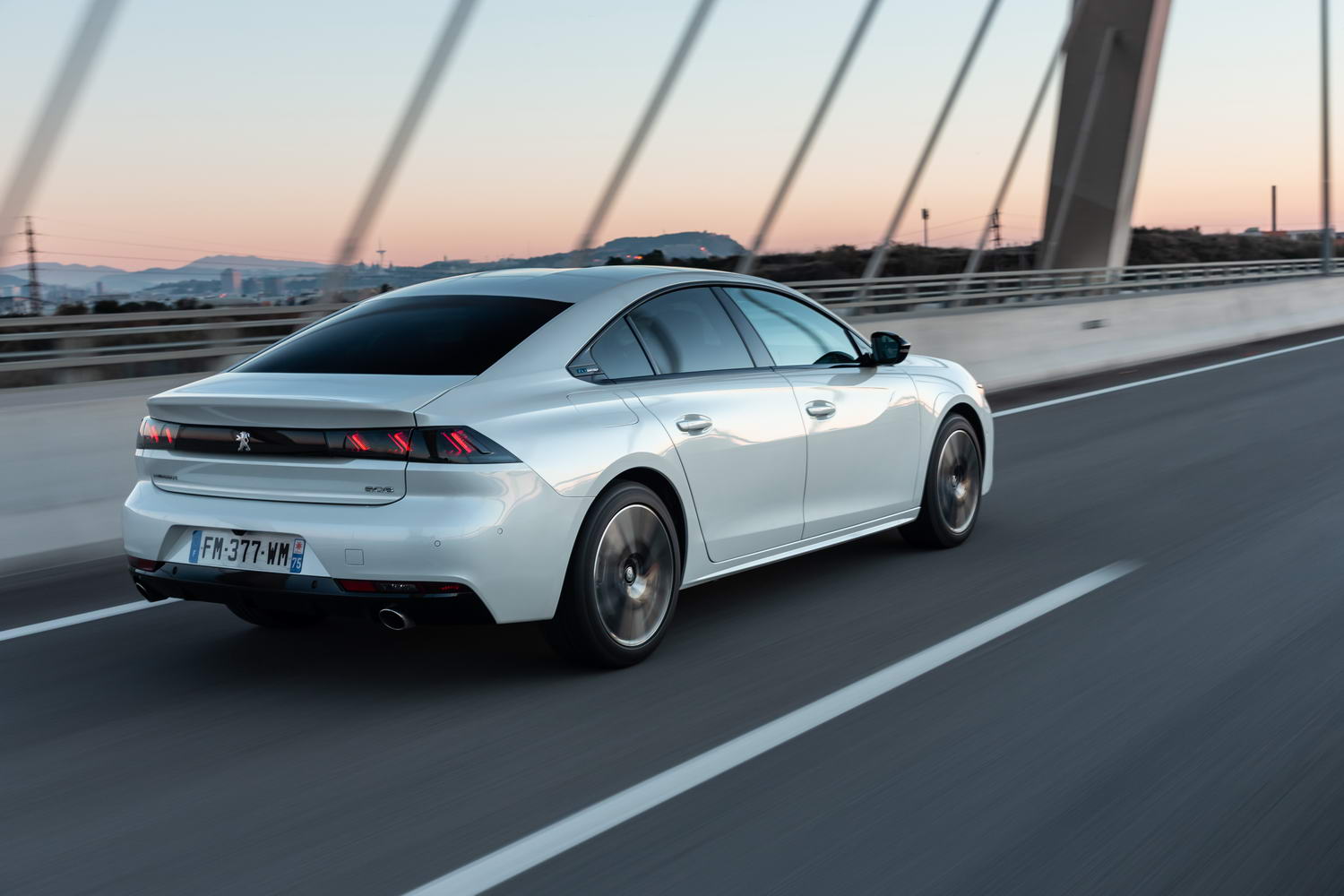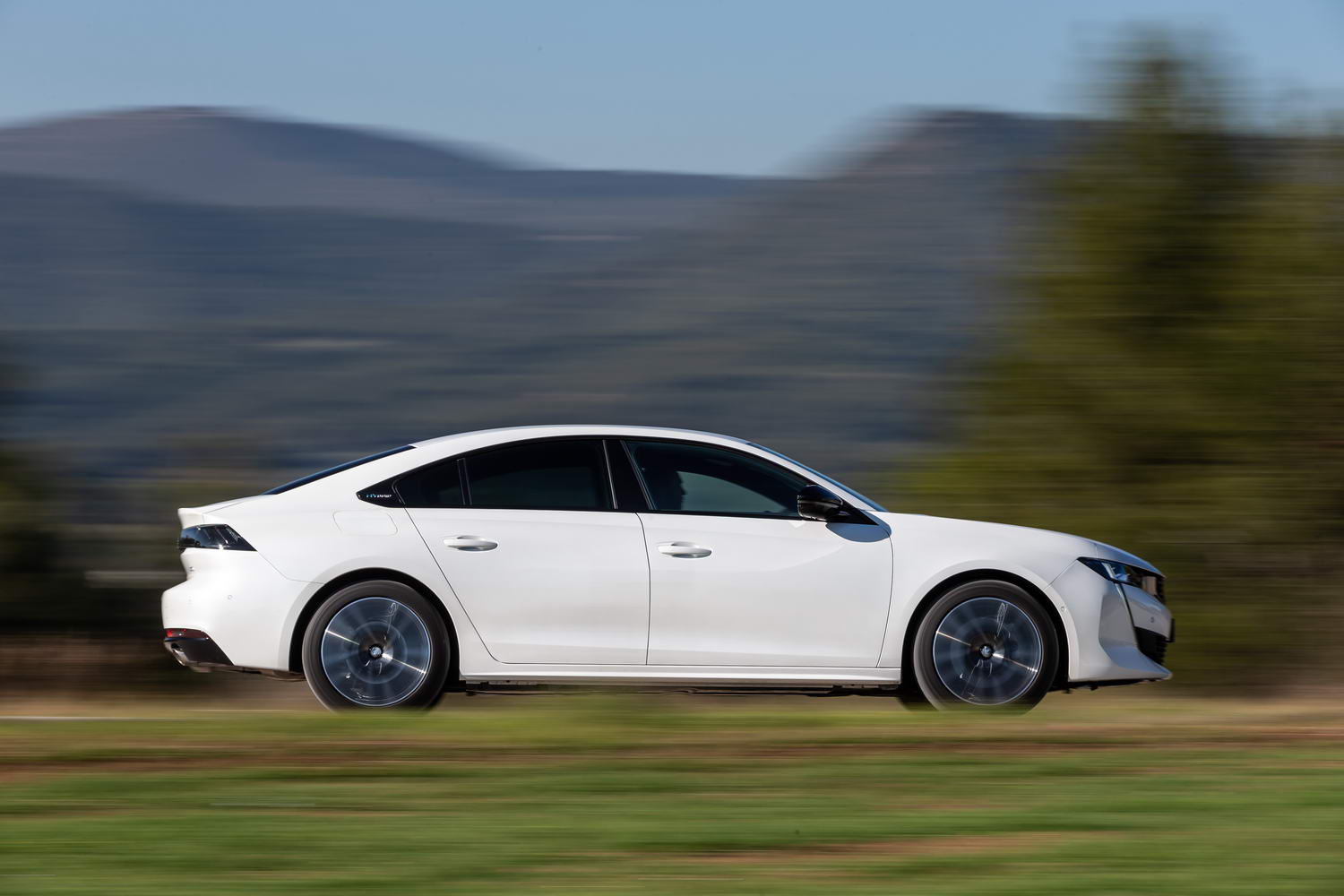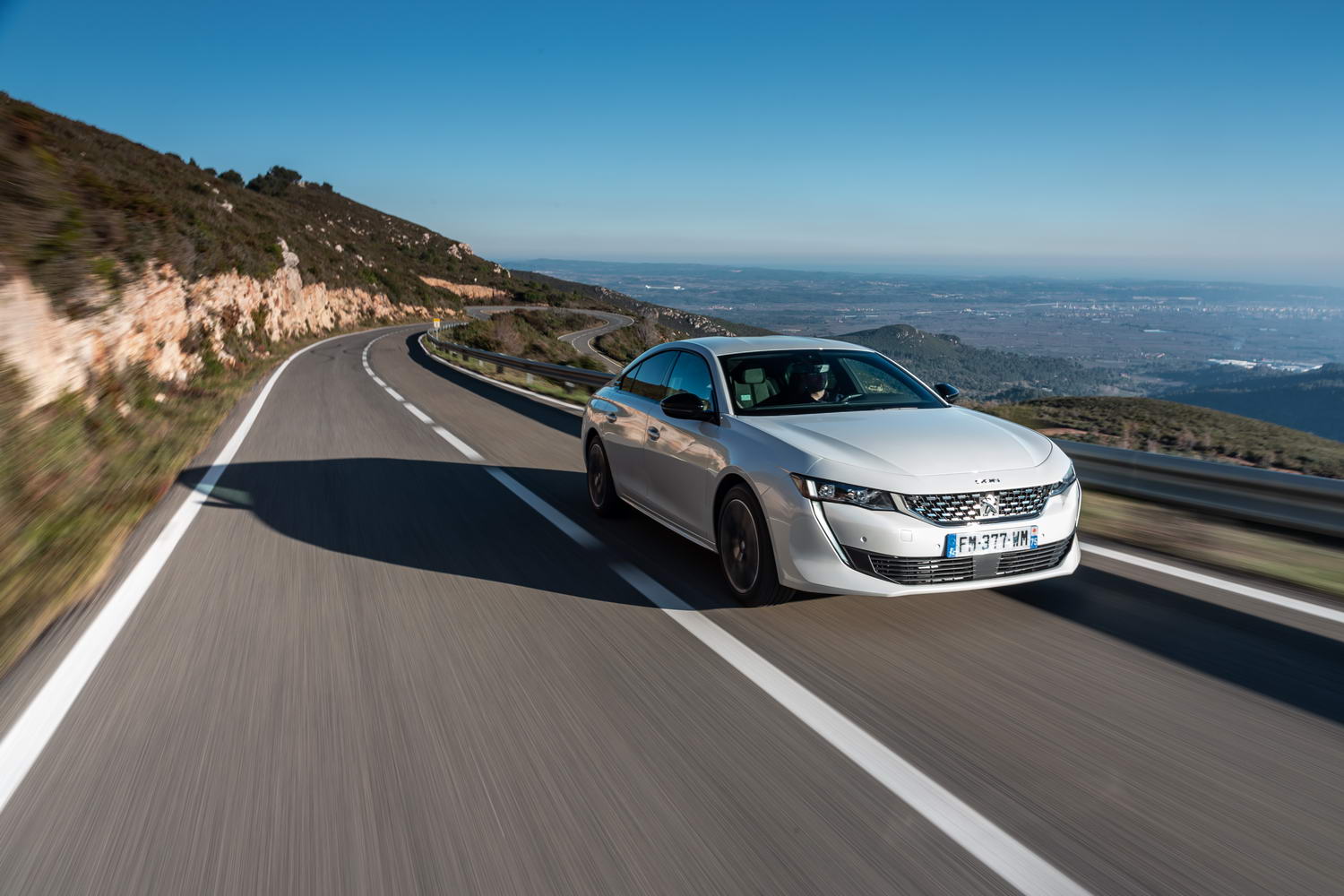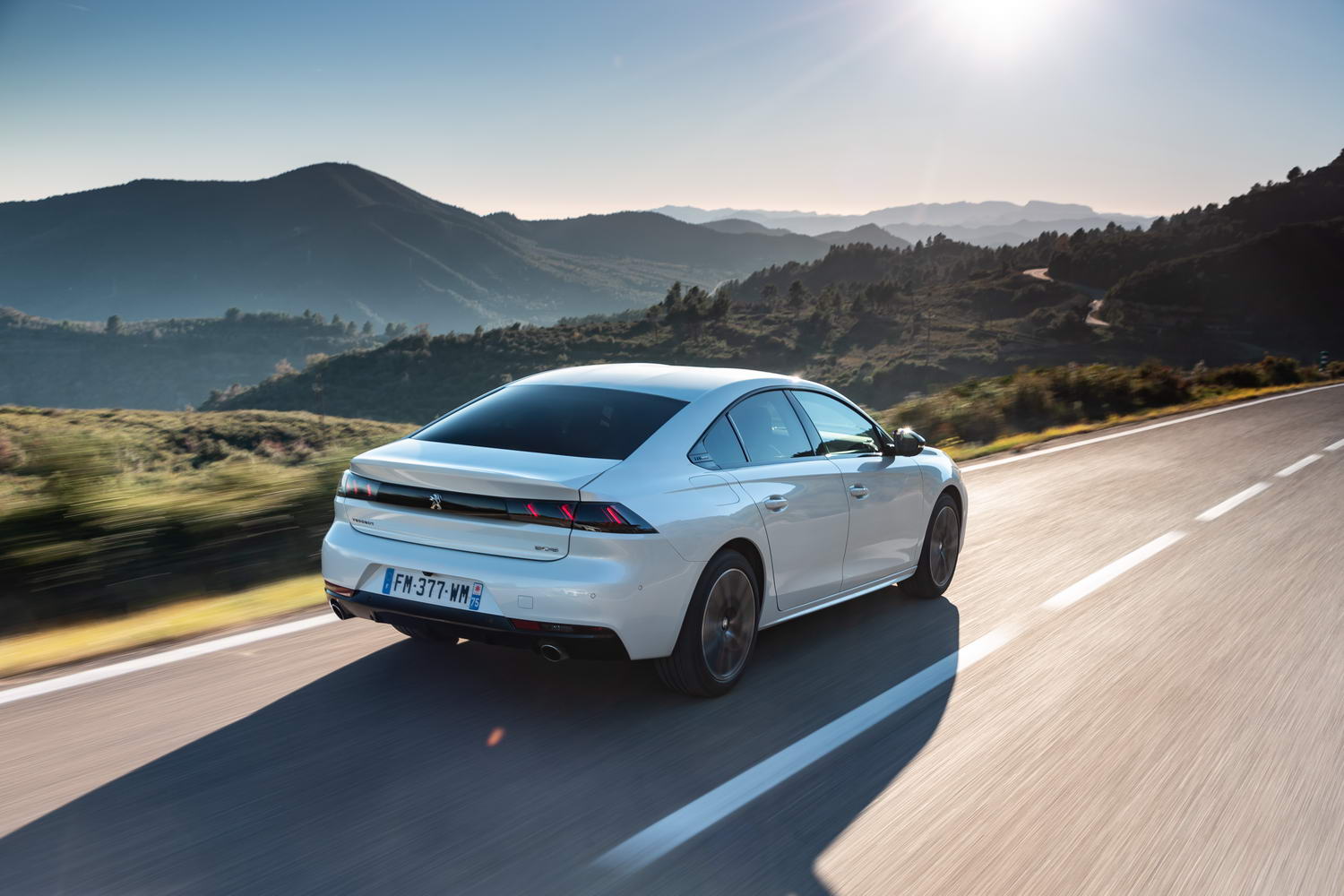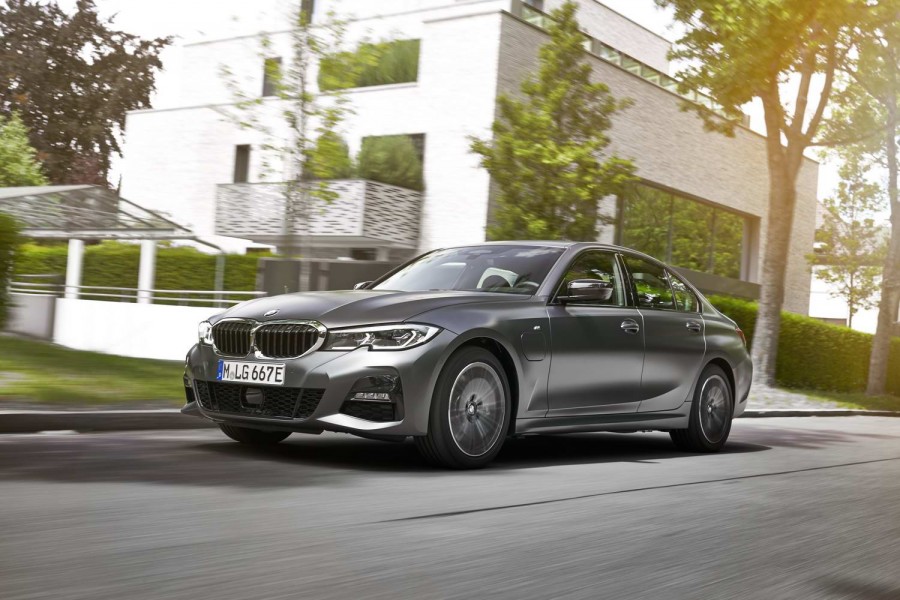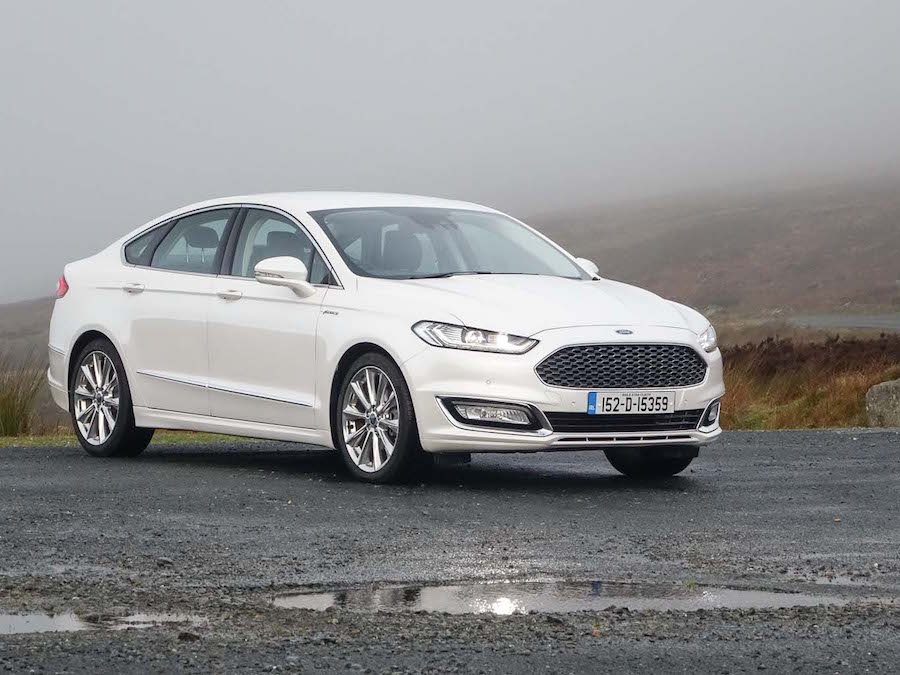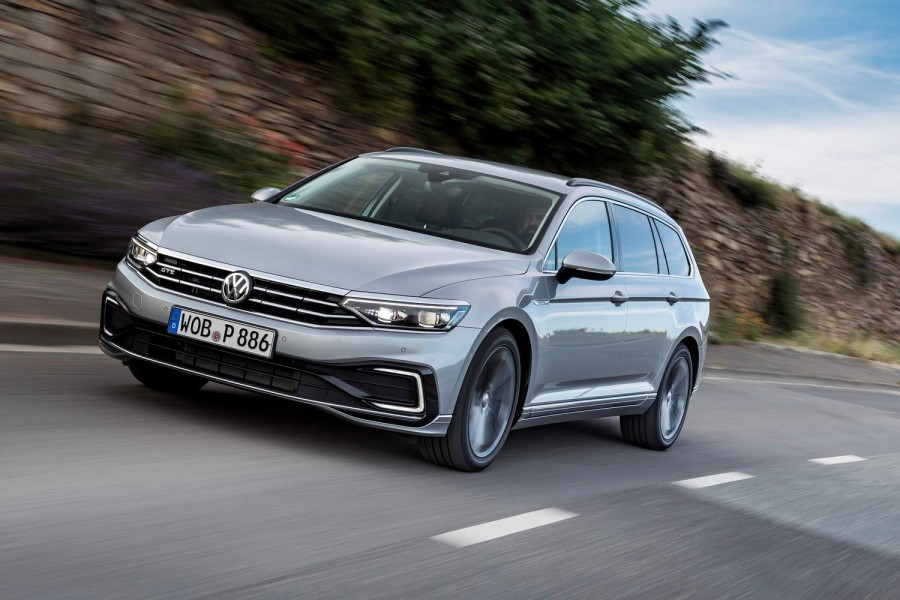More manufacturers than ever are turning to plug-in hybrid electric vehicles (PHEVs) as their 'green' variants in a given range. So, here's the second-generation Peugeot 508, now with a petrol-electric drivetrain. But is it the 508 model to go for?
In the metal
The Hybrid version of the Peugeot 508 looks hardly any different to its siblings and you can have it as an SW estate or as the regular fastback version, as tested here. That means it's one of the best-looking things in this class, if not the outright most handsome creation. Minor plug-in hybrid electric vehicle (PHEV) related details include an additional 'filler' flap on the rear-left flank of the car for the electric charging point, some dichroic 'HYbrid' badges sited just aft of the side glasshouse in the C-pillars and then a new feature for any car - the 508 Hybrid has a cyan-coloured light mounted in its interior mirror, which warns pedestrians it is operating in pure electric mode. Peugeot has a patent out on this idea.
Inside, the PHEV 508 has two-tone Alcantara upholstery, an additional 'B' mark on the crooked gear lever for the e-EAT8 gearbox (a function that controls the level of regenerative braking on offer), an extra piano-key button on the dash marked by a 'voltage' bolt symbol and fresh displays for both the digital head-up instrument cluster of i-Cockpit and also the main infotainment screen. These show energy flow and usage and various hybrid-related information to the driver. Other than that, it's standard 508 fare, which means a high-quality and attractive to look at cabin. Better still, the platform the 508 sits upon was always designed for electrification and so mounting the additional gear for the PHEV systems under the floor of the boot means these Hybrid versions lose nothing in terms of cargo capacity, when compared to their combustion-engined stablemates.
Driving it
Peugeot bases its PHEV system on the 1.6-litre turbocharged petrol engine, which you can find in the range-topping 225hp 508 GT model. It is also offered in a detuned state with 180hp in various markets and it's this version of the 1.6 used here, supplemented by an 80kW (110hp) electric motor, an 11.8kWh lithium-ion battery pack and an electric-specific version of the EAT8 automatic gearbox. Peak power thus matches the GT's 225hp output, while maximum system torque is quoted as 360Nm.
Controlling all of this are four drive modes, one of which is pure Electric. Peugeot says the 508 will go up to 54km in the zero-emissions setting and this goes a long way to the car's tax-friendly CO2 emissions. Charging times are anything between 1hr 45mins on a 32-amp, 6.6kW wallbox and up to seven hours on a domestic electric socket, so it's a car that can easily be used in Electric more often than not; indeed, Peugeot reckons business users will be capable of doing up to 35 per cent of an annual 30,000km distance on zero-emissions running, provided charging is regular.
Beyond Electric, there are Sport, Hybrid and Comfort settings. The former optimises the drivetrain and chassis for spirited driving, with less steering assistance, a sharper throttle, a more reactive shift pattern in the gearbox and the maximum power delivery possible. Hybrid is basically the normal, default setting and simply leaves the onboard computers to best work out the most efficient way of using the petrol and electric reserves at any given moment. Comfort is the most unusual; it appears to be the Hybrid setting, only with the adaptive dampers dialled down to their softest setting for the plushest ride quality - it appears in lieu of a fully committed 'Eco' mode, which is the norm in most electric and hybrid vehicles.
To drive, the 508 Hybrid is very similar to the GT, with the caveat that adding the electric running equipment has added a not-inconsiderable 280kg to the kerb weight of the car. That has an impact on handling and performance: there's around six-tenths of a second in it for the quoted 0-100km/h times of the GT and this Hybrid, despite both having 225hp and the Hybrid having access to more (and more instant) torque from its electrics, but - if anything - the gap in acceleration in favour of the GT feels even more marked than that. Even with both propulsion systems fully wakened, the Hybrid doesn't feel as fast and as muscular as a good turbodiesel alternative. Same goes for the handling, which is reasonably involving and sharp, but the car always feels heavy - most notably, when it's on the brakes into corners and when you try to get it turned in.
So, it pays to drive the 508 Hybrid in a more genteel fashion, whereupon its superb refinement characteristics come to the fore. Like any 508 Mk2, the PHEV has a quality, cushioned ride when in town, while out on open arterial routes and when it's cruising along a motorway. Noise suppression is pretty good too, with little tyre or wind noise to note, so the only intrusion to the serenity of the passenger compartment will come from the 1.6-litre engine if you ask for much more than 4,000 revs. Finally, click the gear lever into B mode and there's just about enough regenerative braking effect to drive it almost entirely on one pedal alone, although you will find you still need the brake pedal itself to bring the car to a total halt at junctions and roundabouts.
What you get for your money
Despite the SEAI grant and VRT rebate, the plug-in hybrid version of the Peugeot 508 is, sadly, usually more expensive than the equivalent petrol or diesel model. It's offered in Allure (€38,895), GT Line (€41,895) and GT (€46,395) specifications. We say 'usually' as, in a quirk of the emissions and VRT bands, the 508 GT Hybrid2 is actually the cheapest of the GT variants. Estate buyers can choose from the same range in the 508 SW Hybrid2 for a premium of €1,600 over the fastback. Money well spent; we feel.
Summary
A well-executed addition to the Peugeot 508 family, the Hybrid teams smooth driving manners with the potential for incredibly low running costs. The usual PHEV refrain has to be sounded, though: to get the best from these petrol-electric hybrids, you need to charge their batteries regularly, to ensure you enjoy the sort of otherworldly fuel economy claims you see on paper. If you're a semi-urban business commuter, this is definitely the 508 for you. If you're not, then the Hybrid's sizeable kerb-weight penalty affects the dynamics enough for us to recommend the regular combustion-engined models instead, depending on pricing of course.

